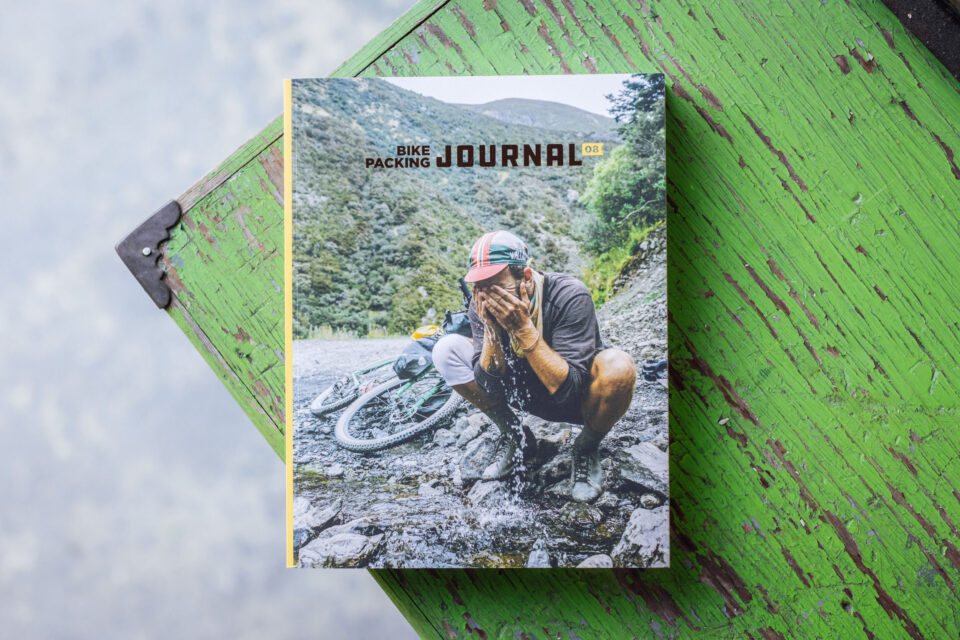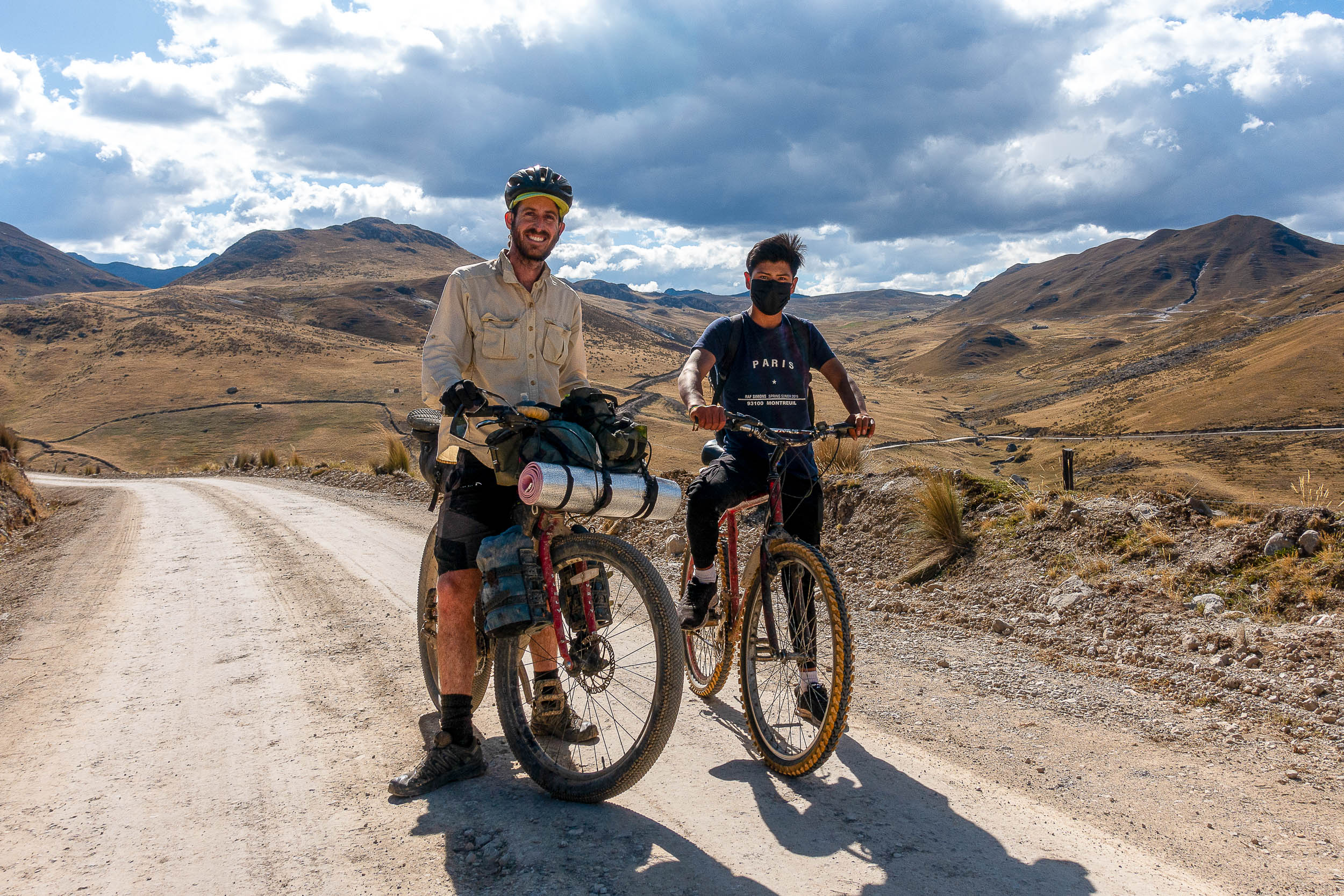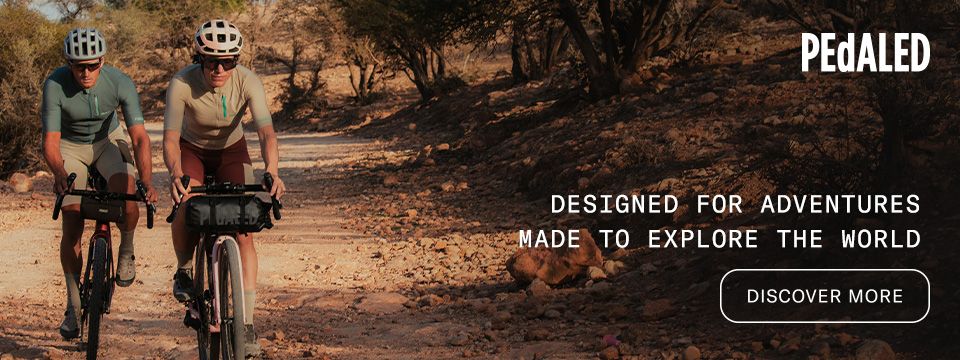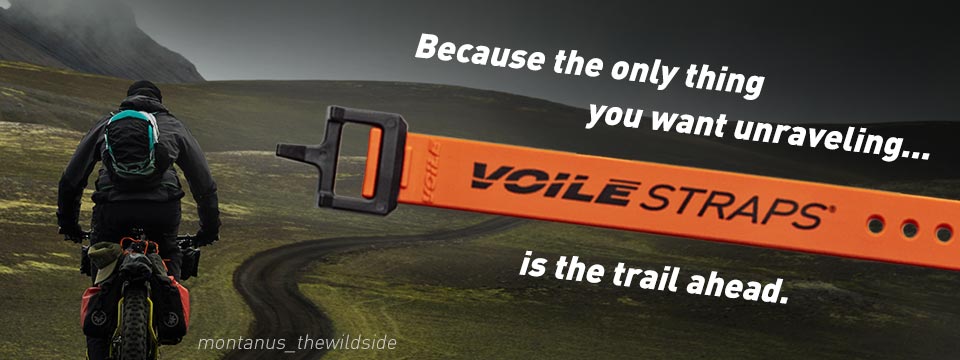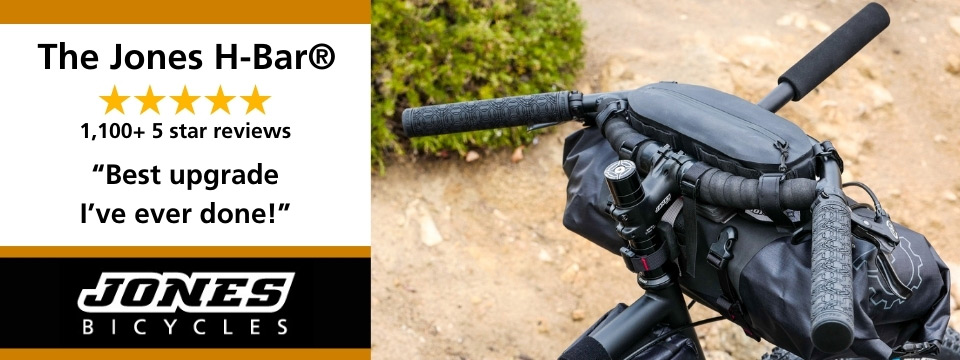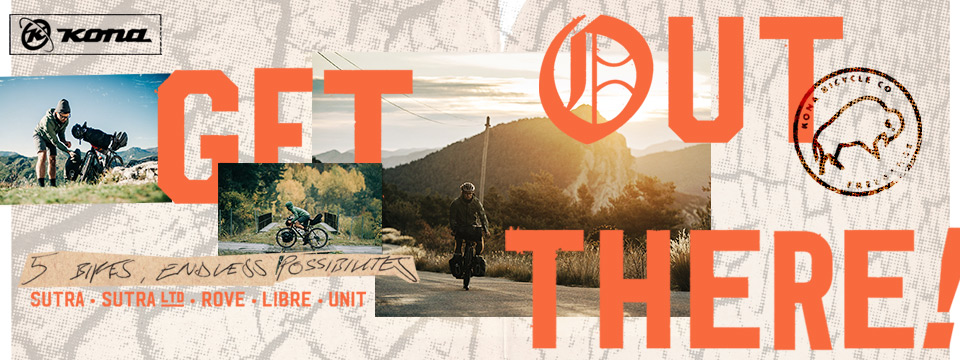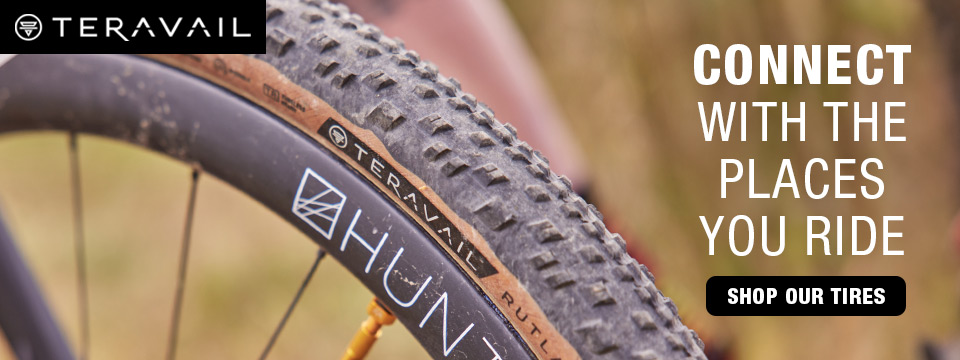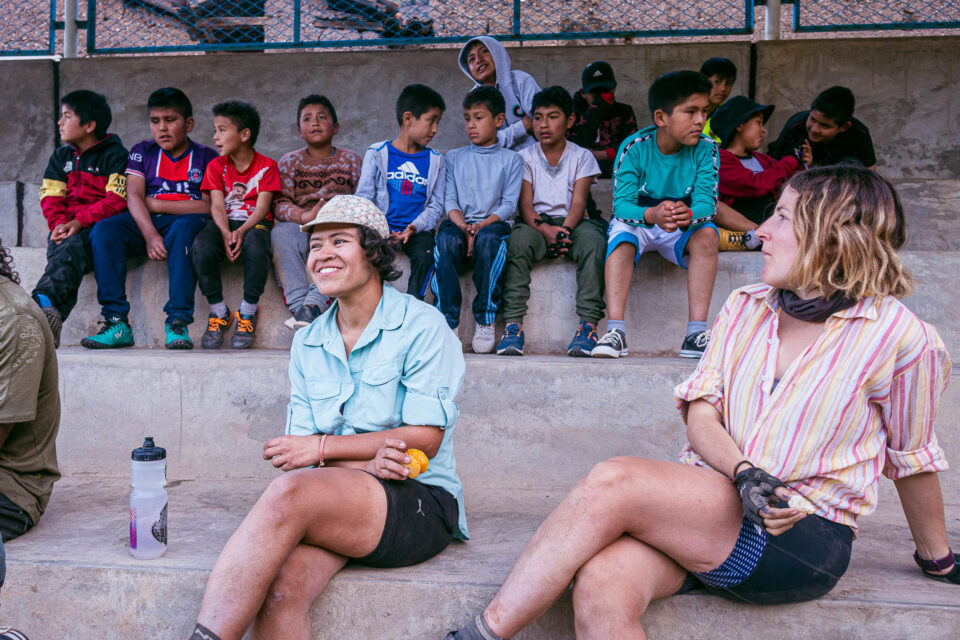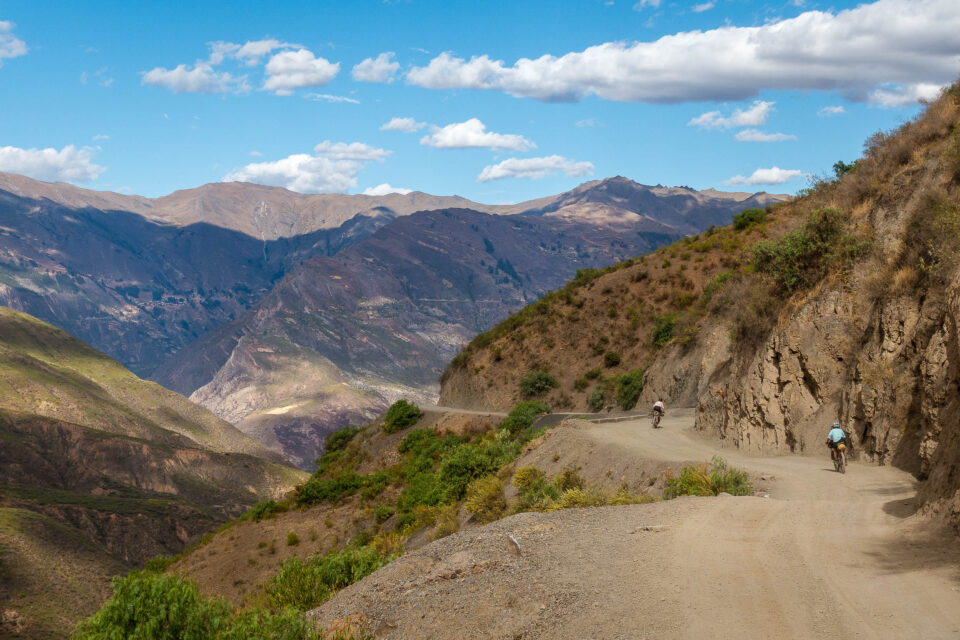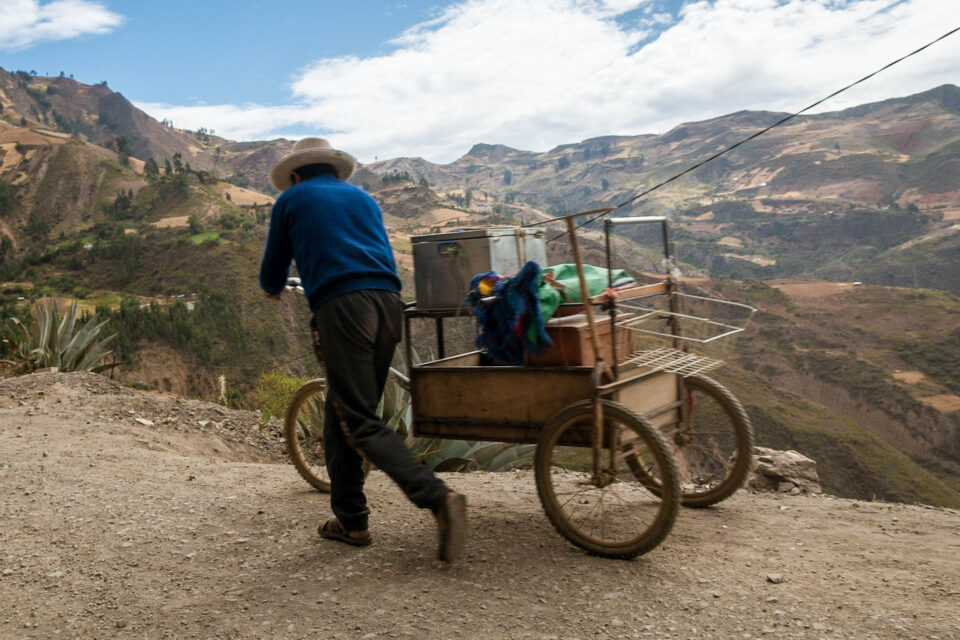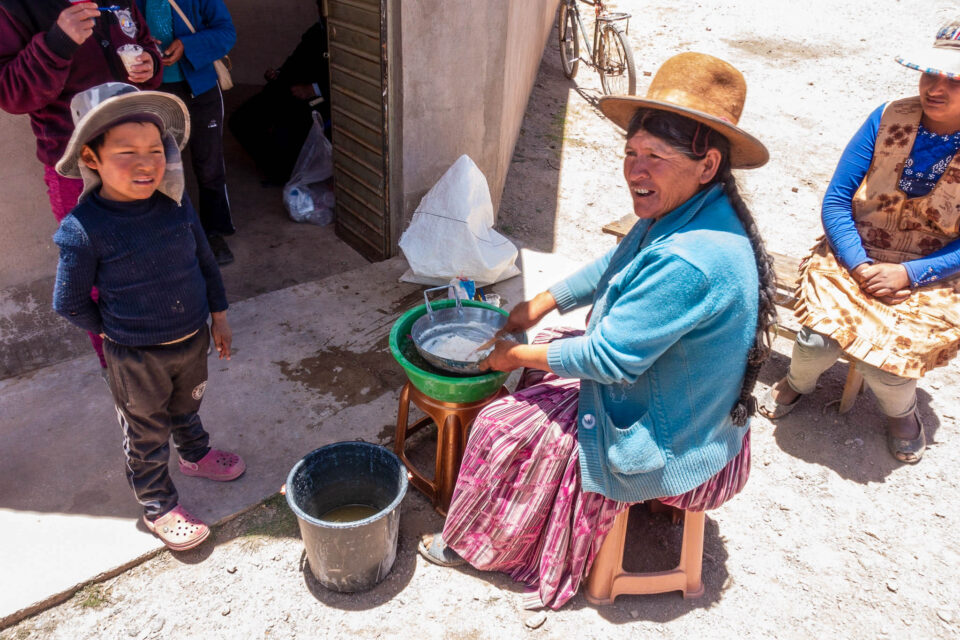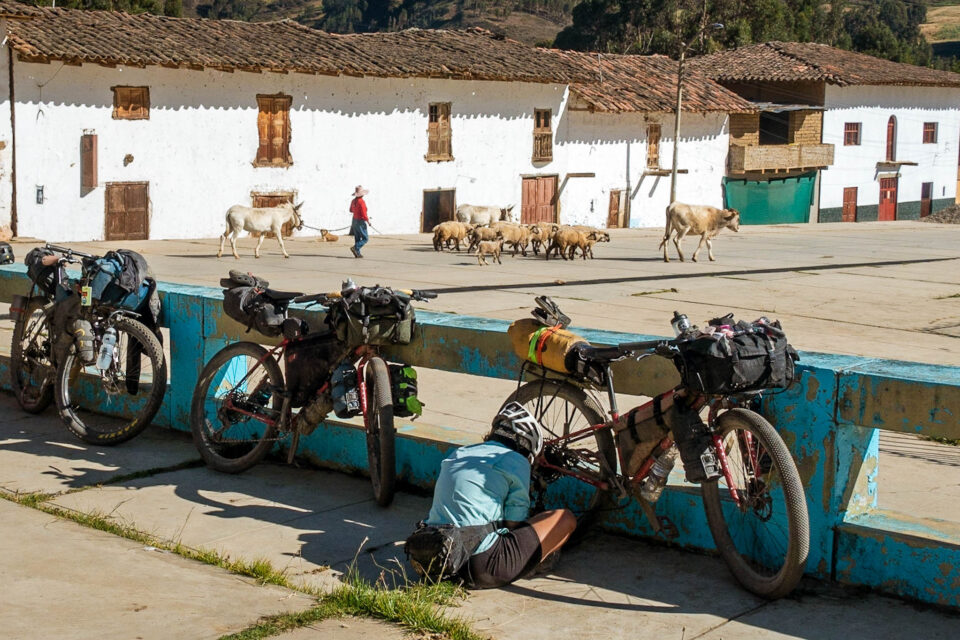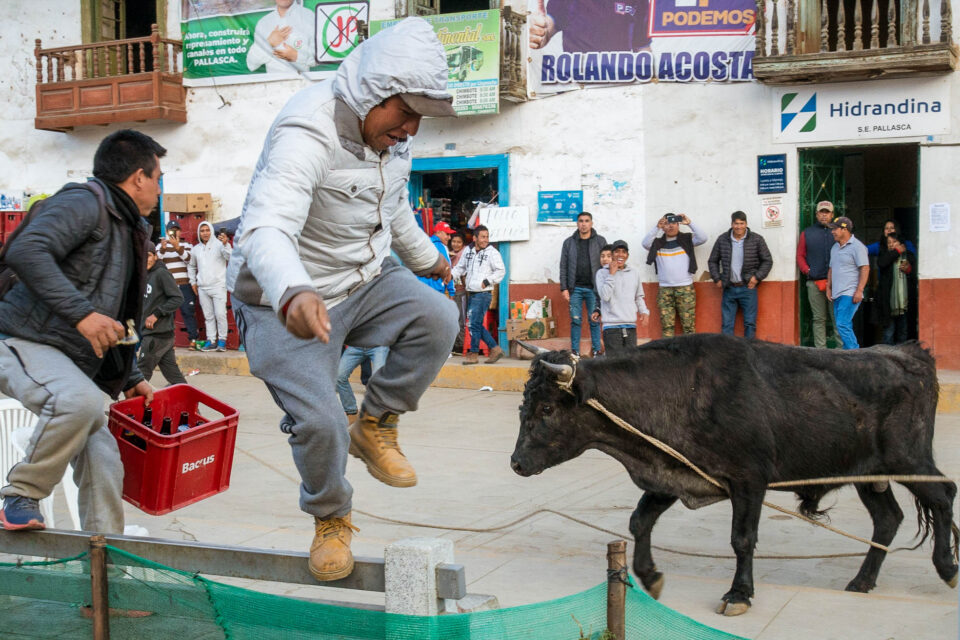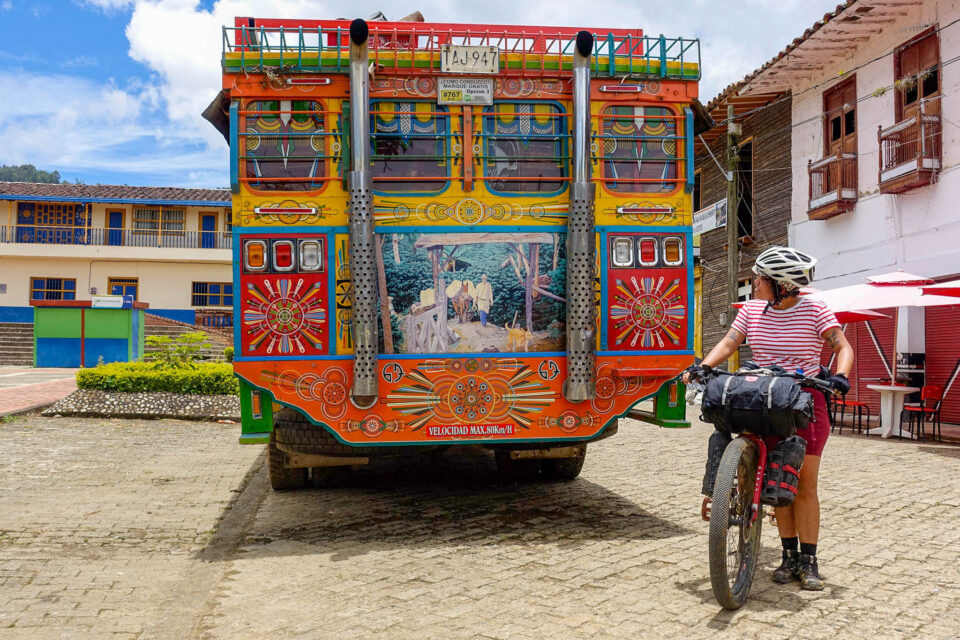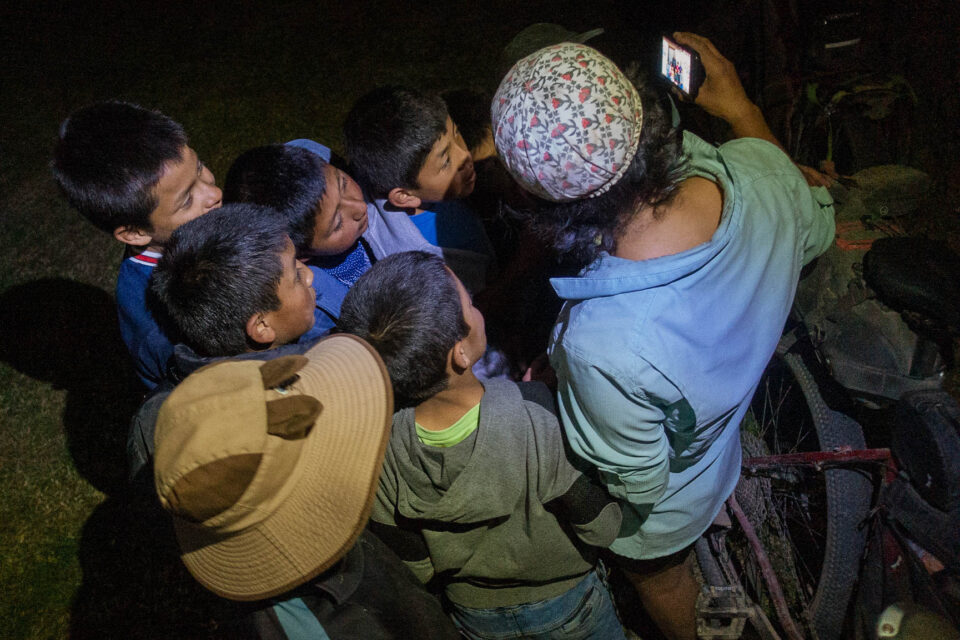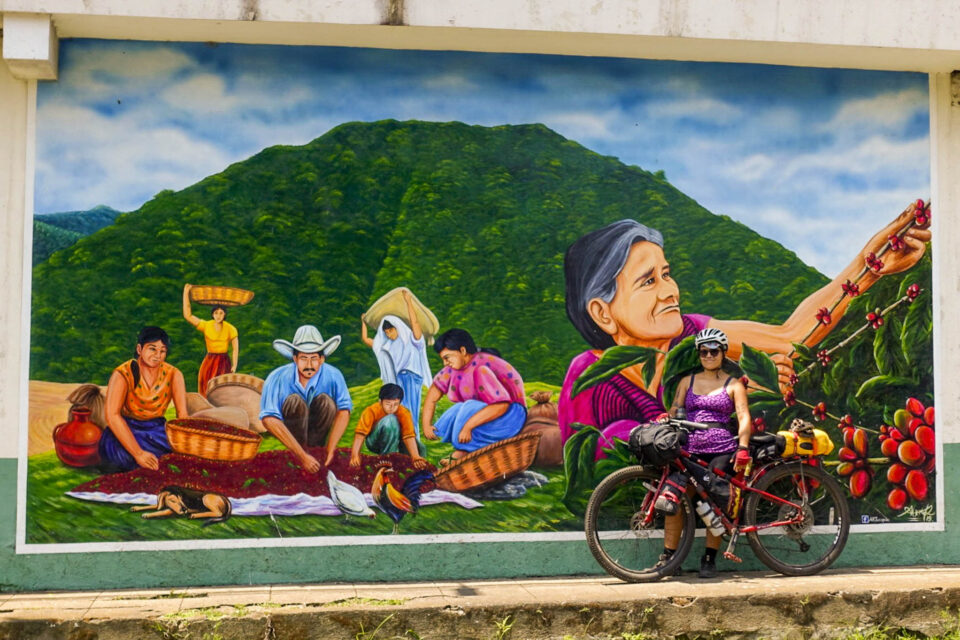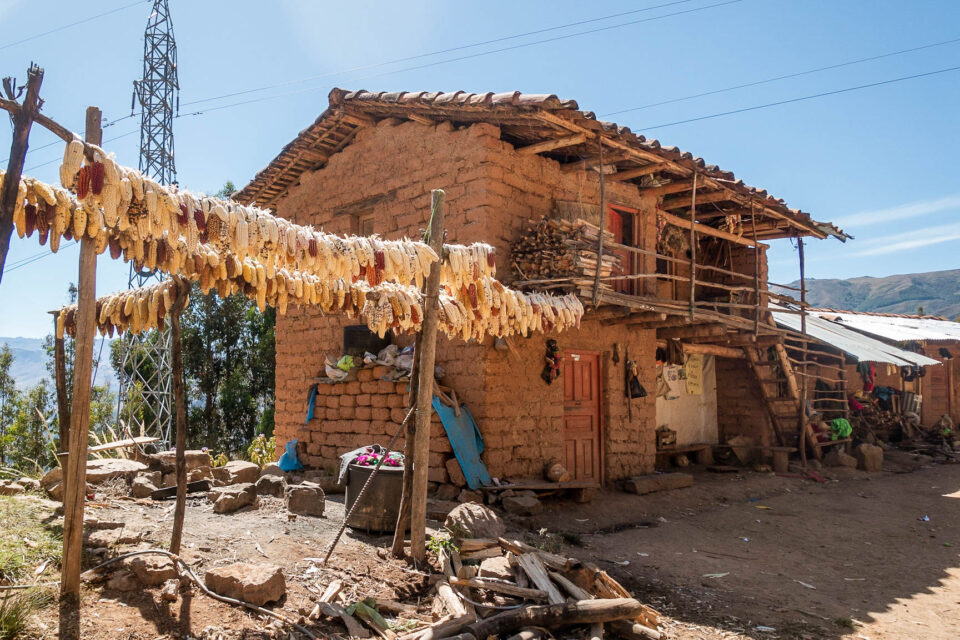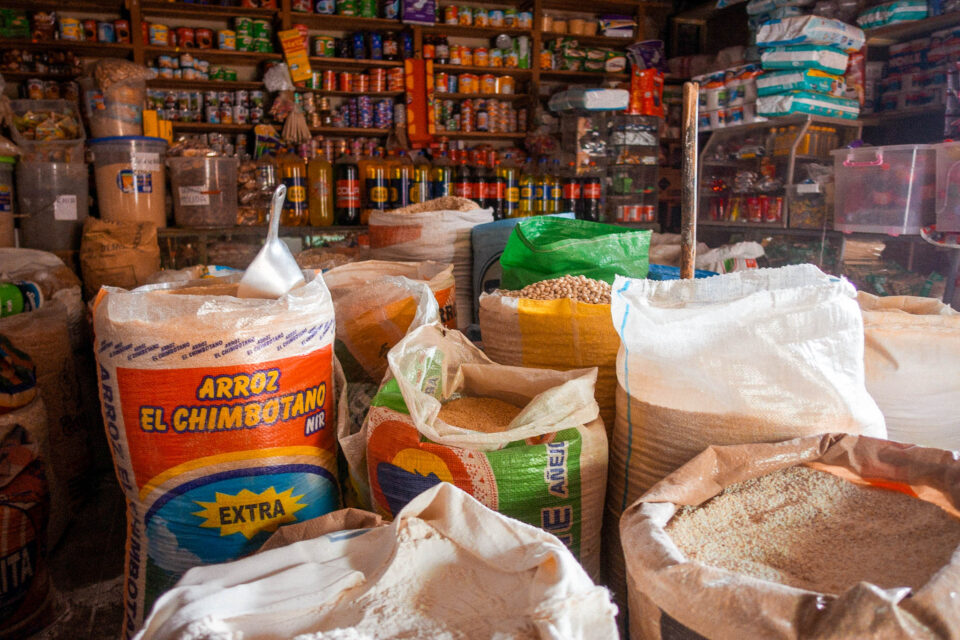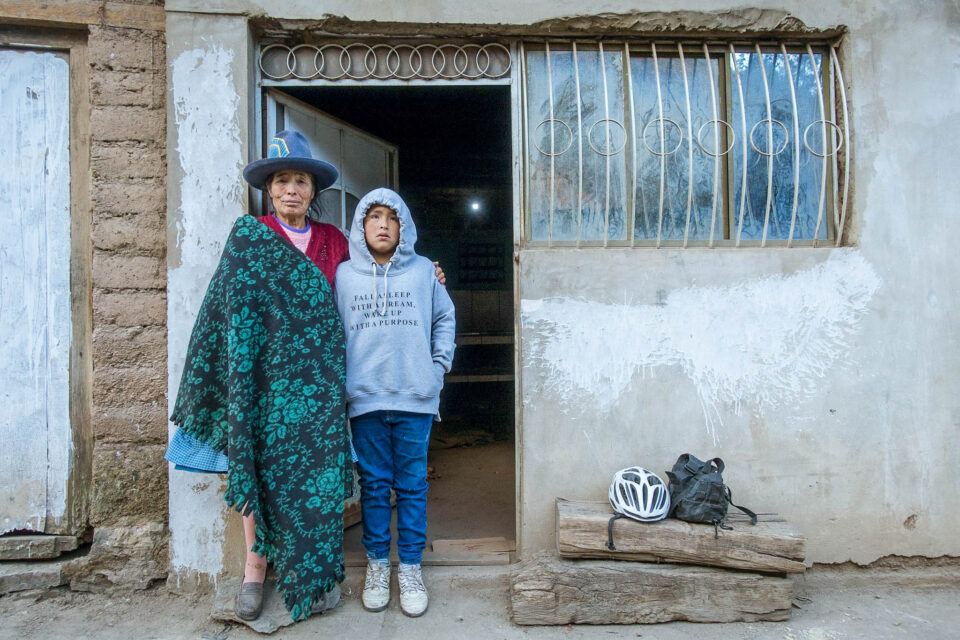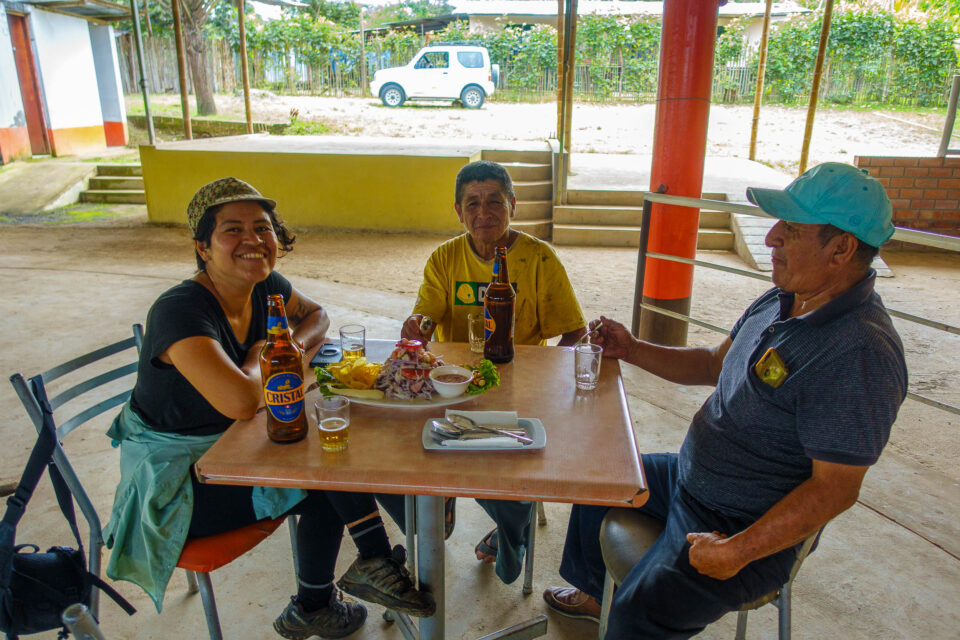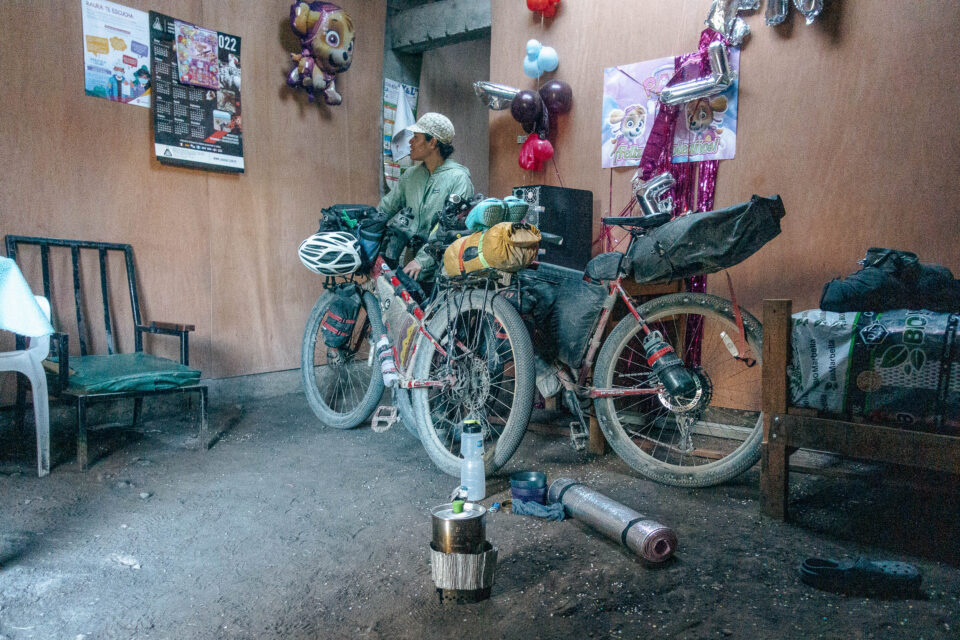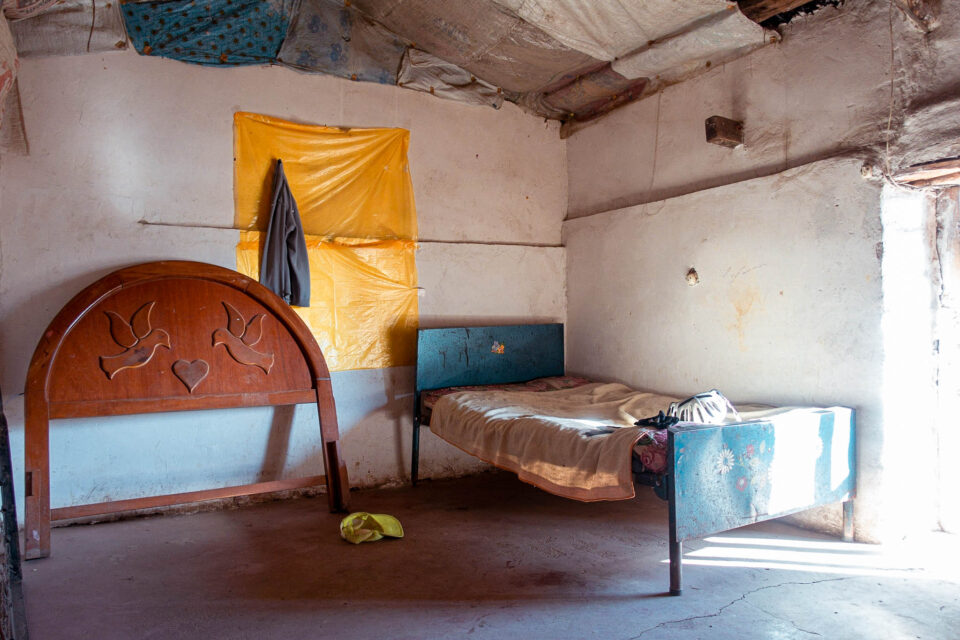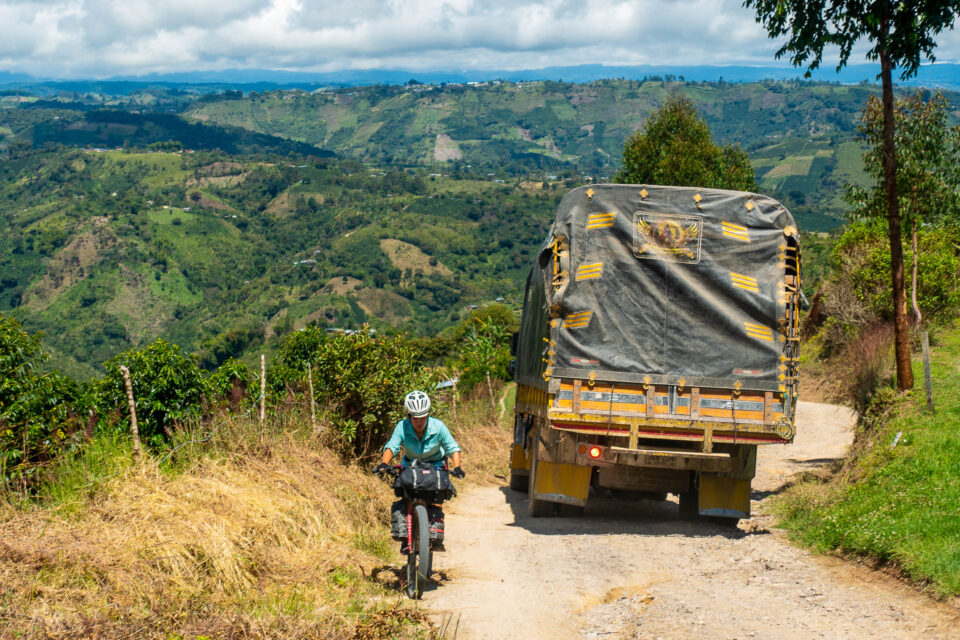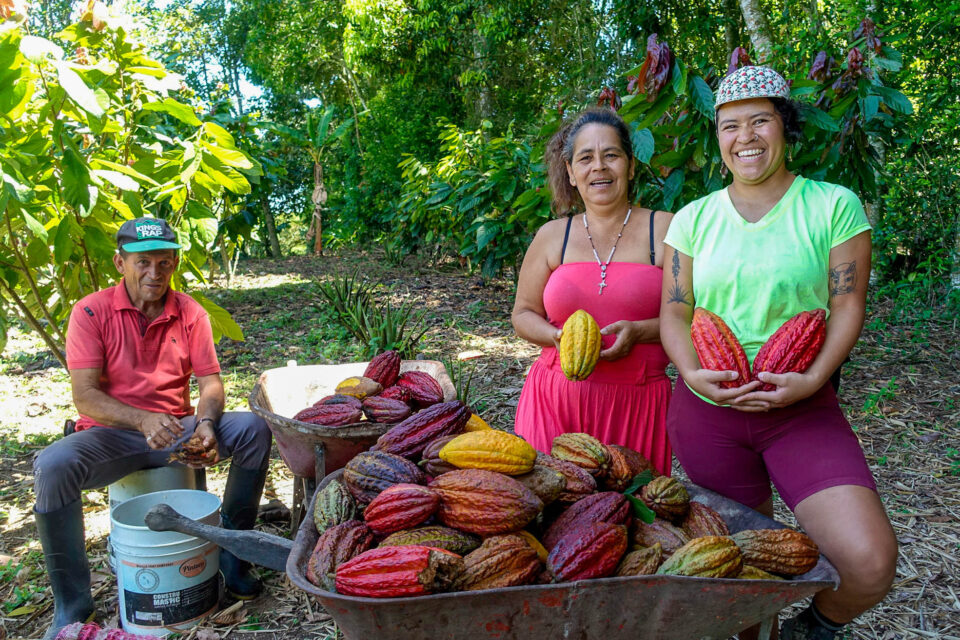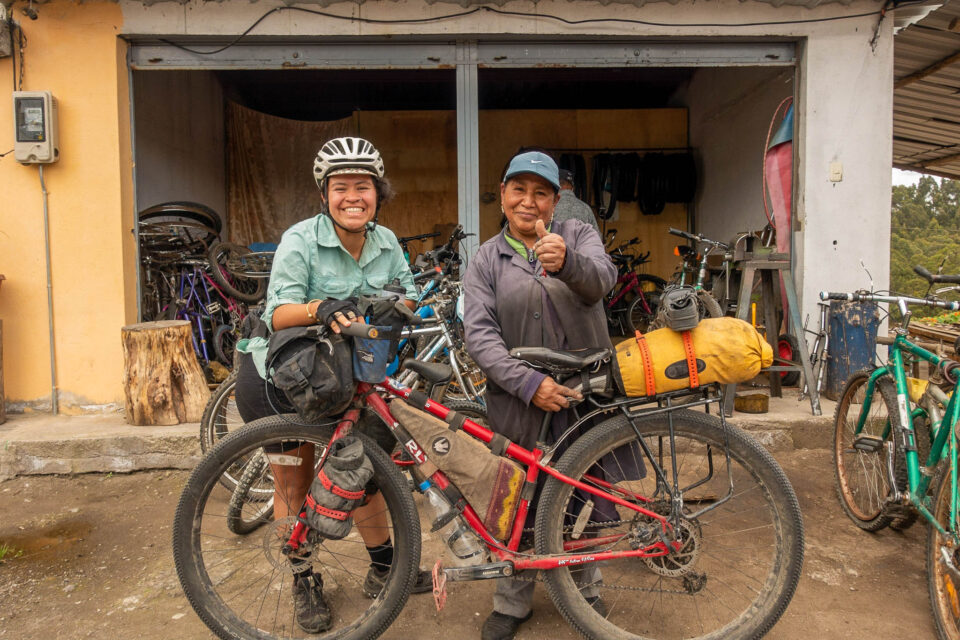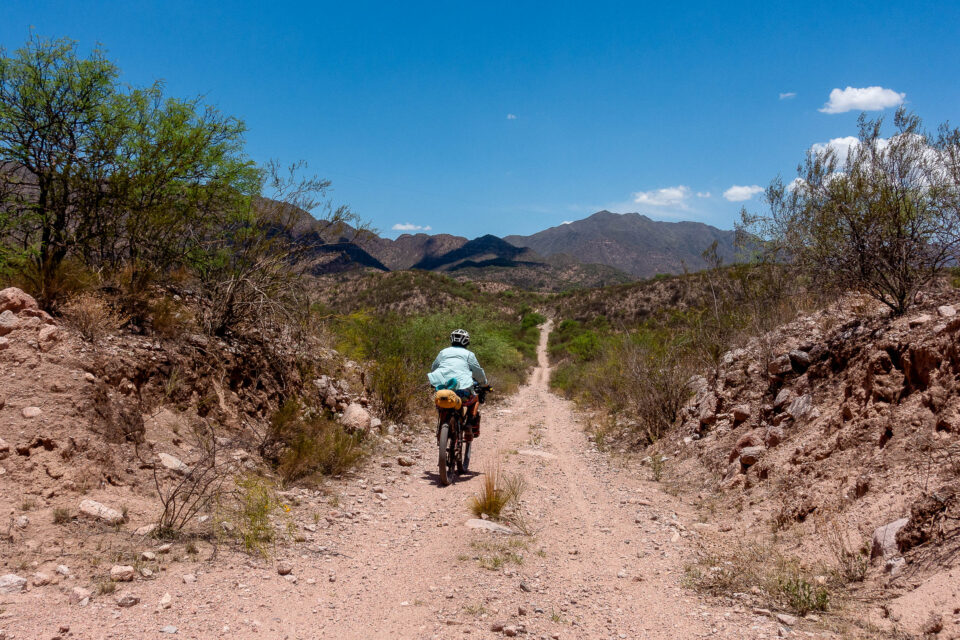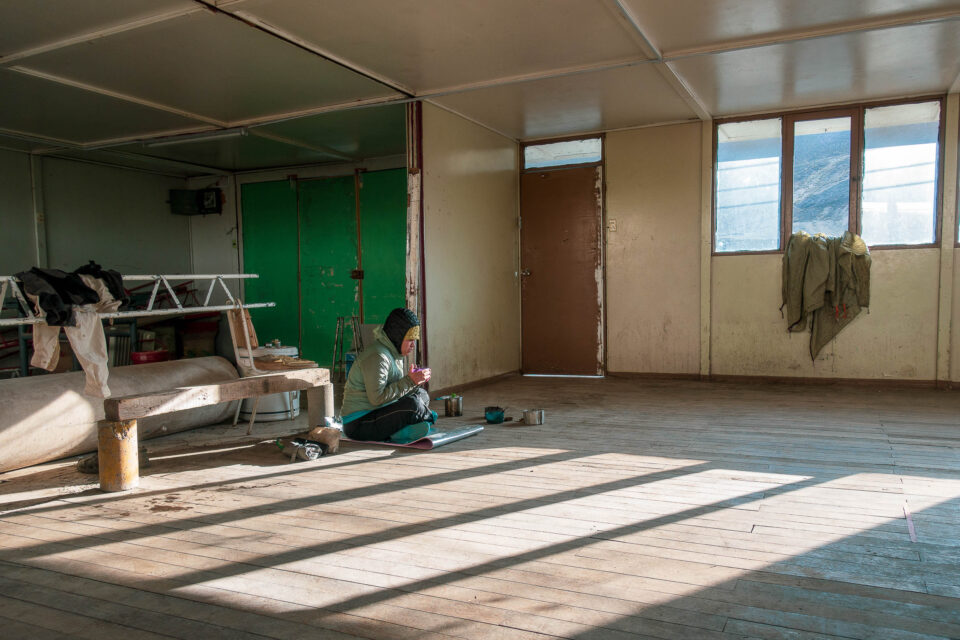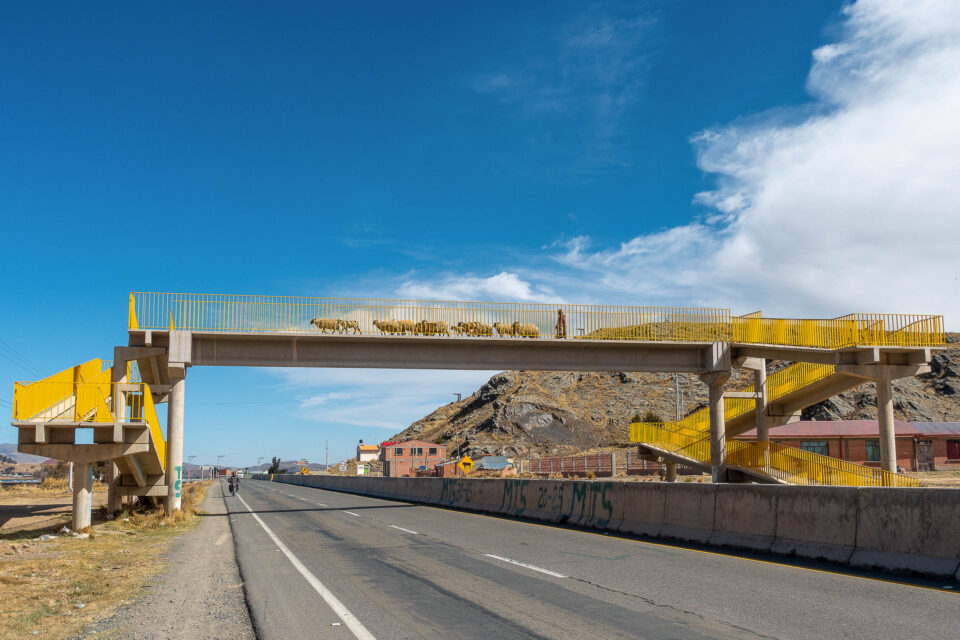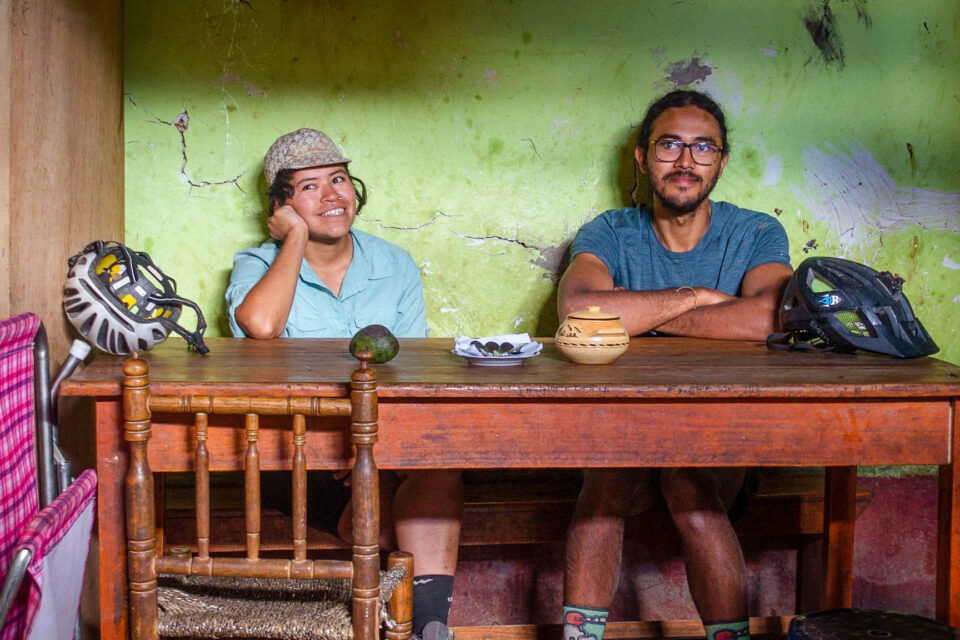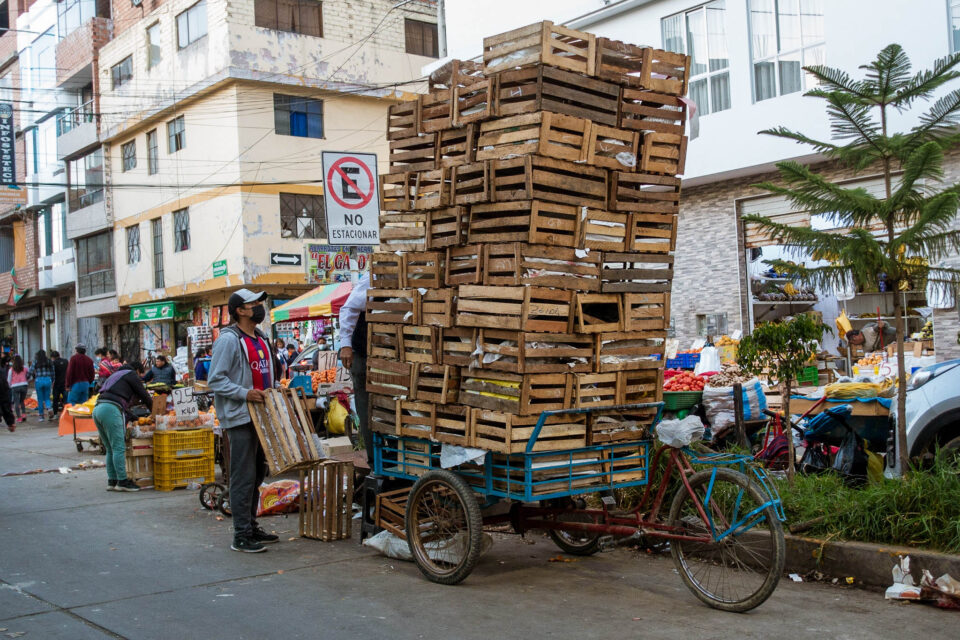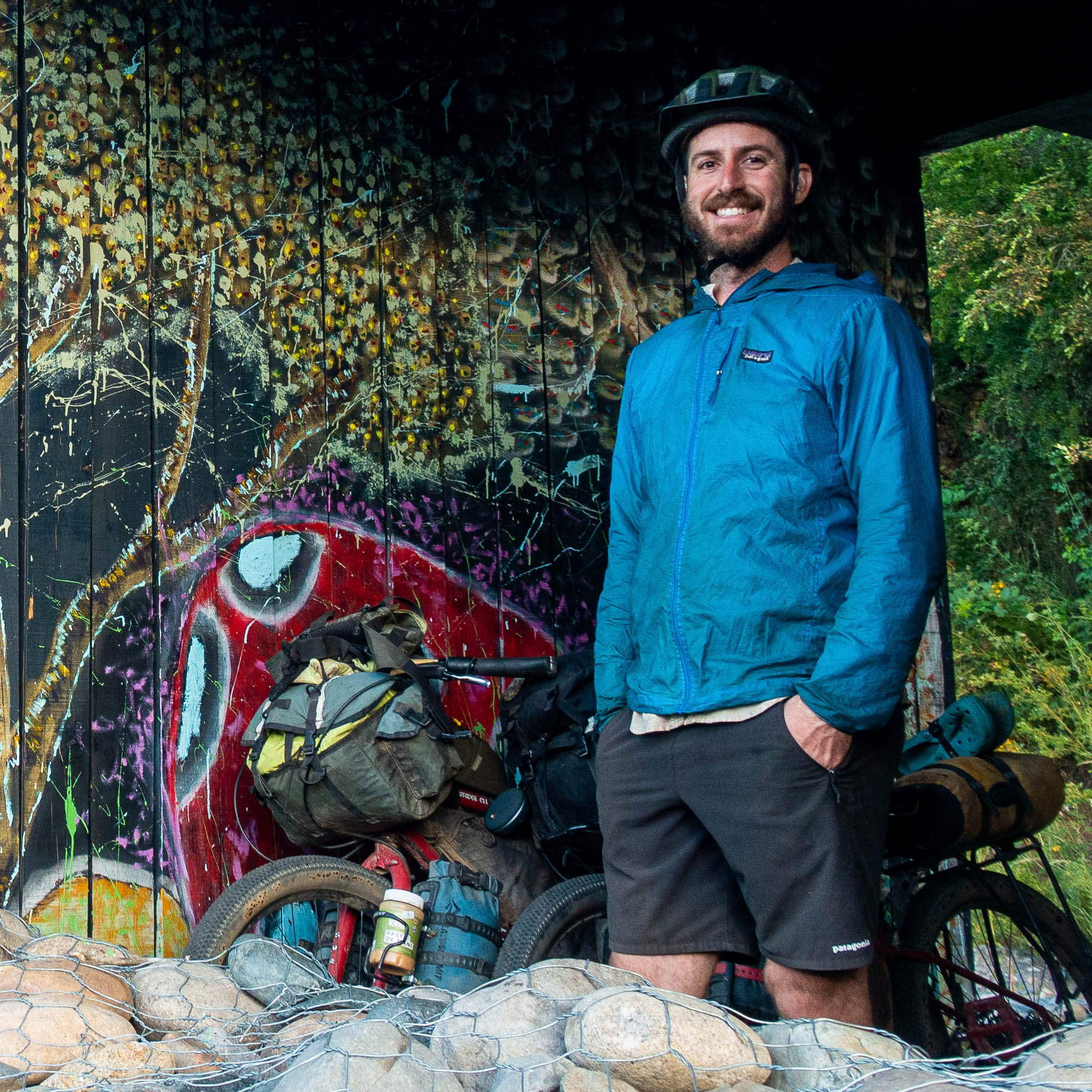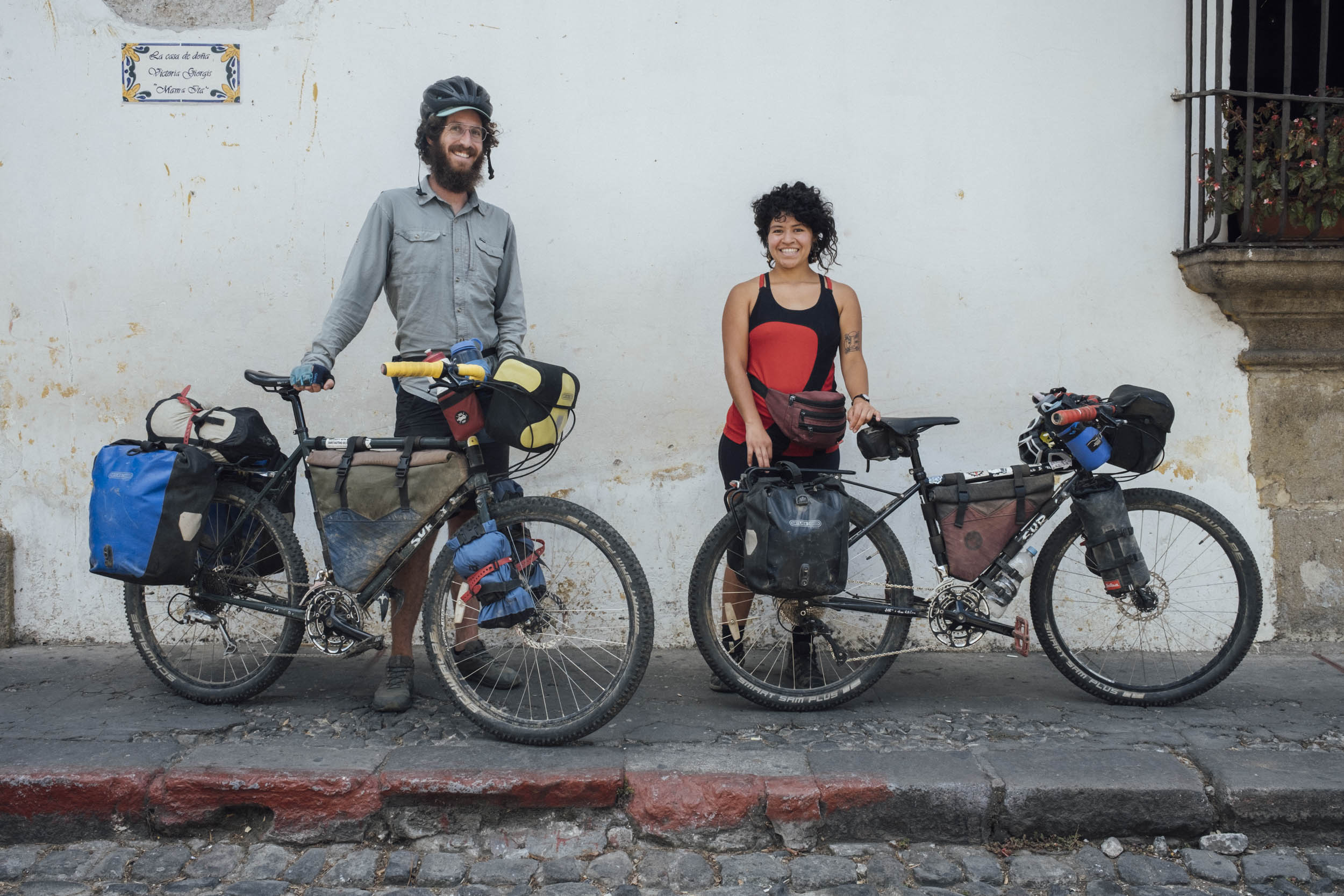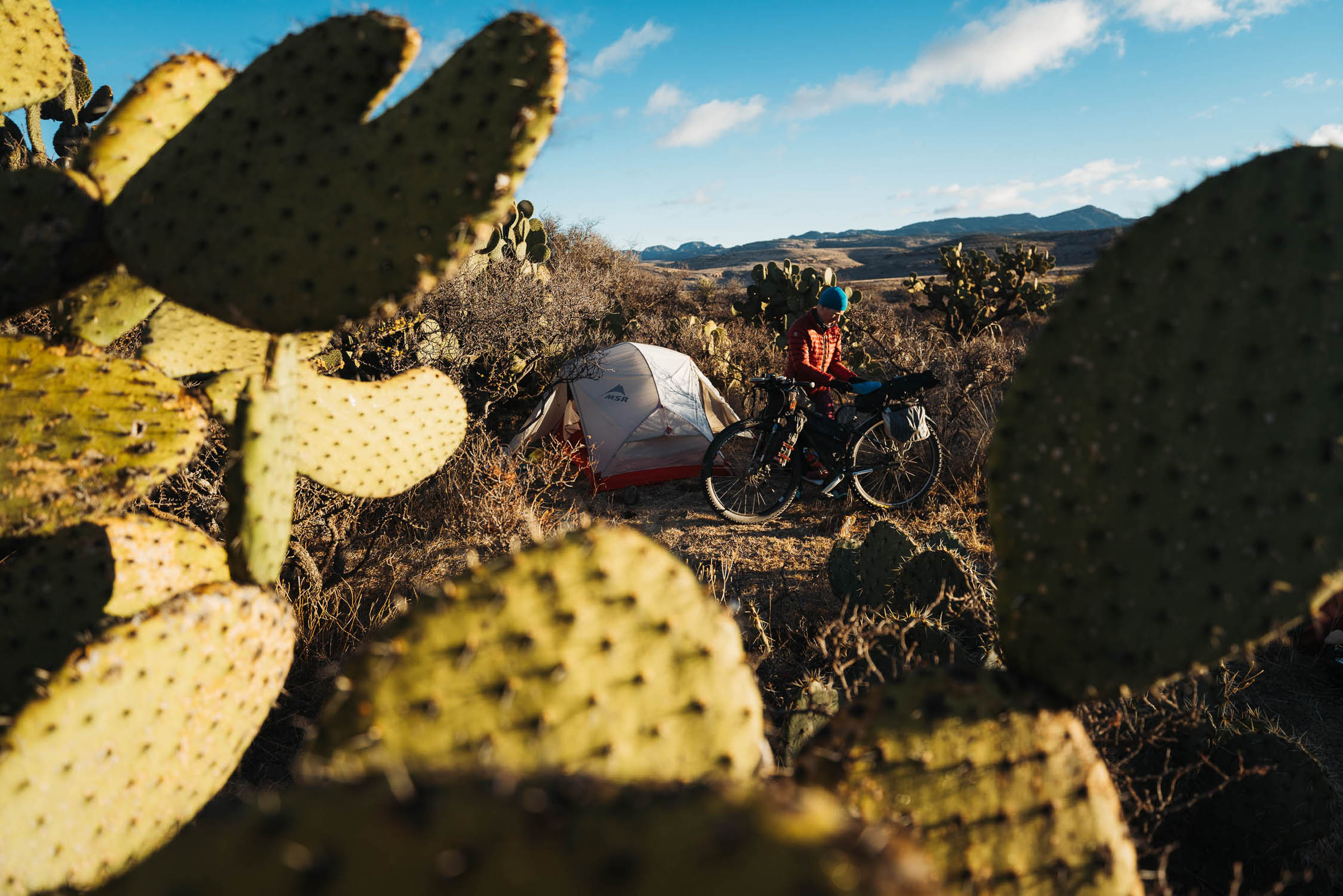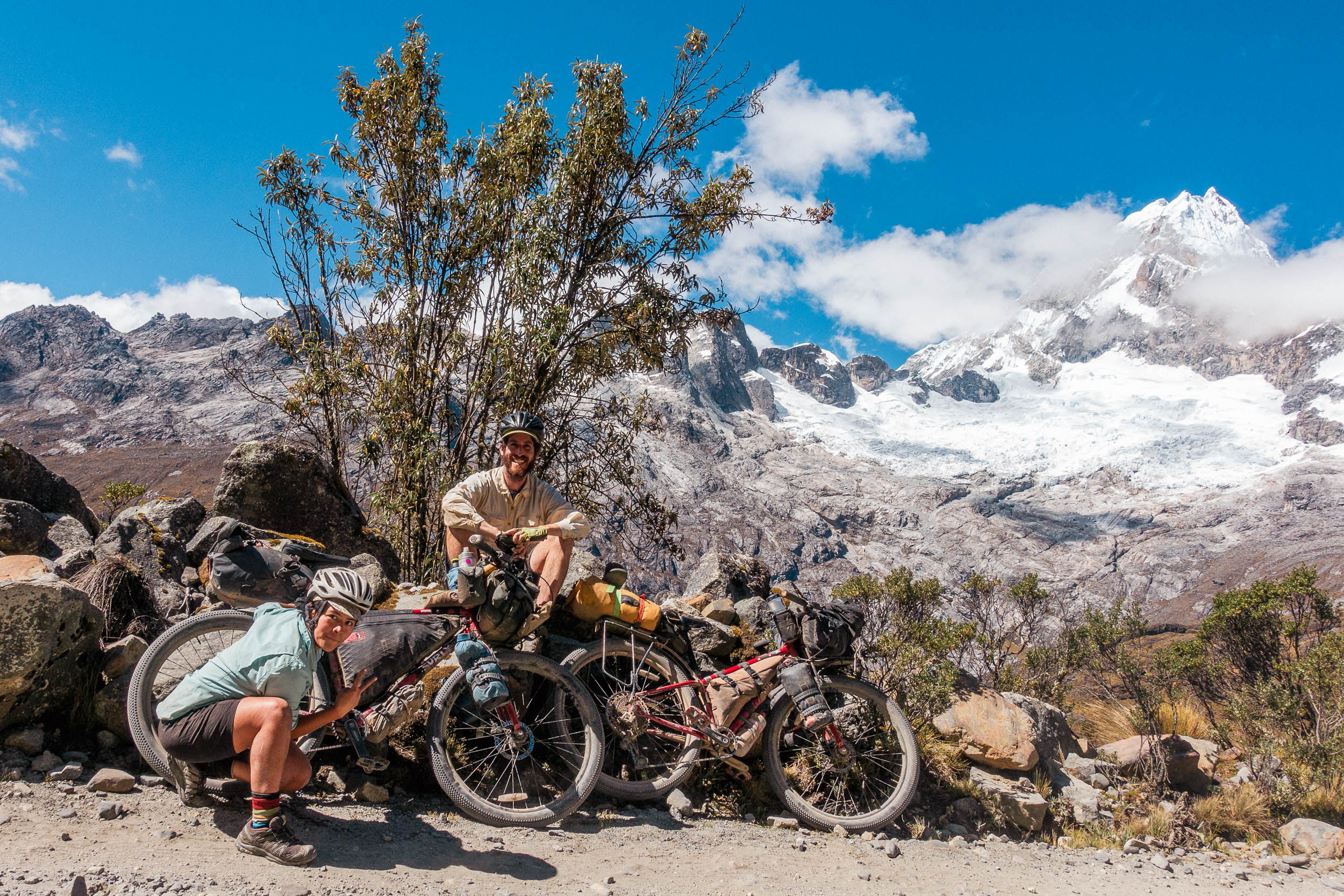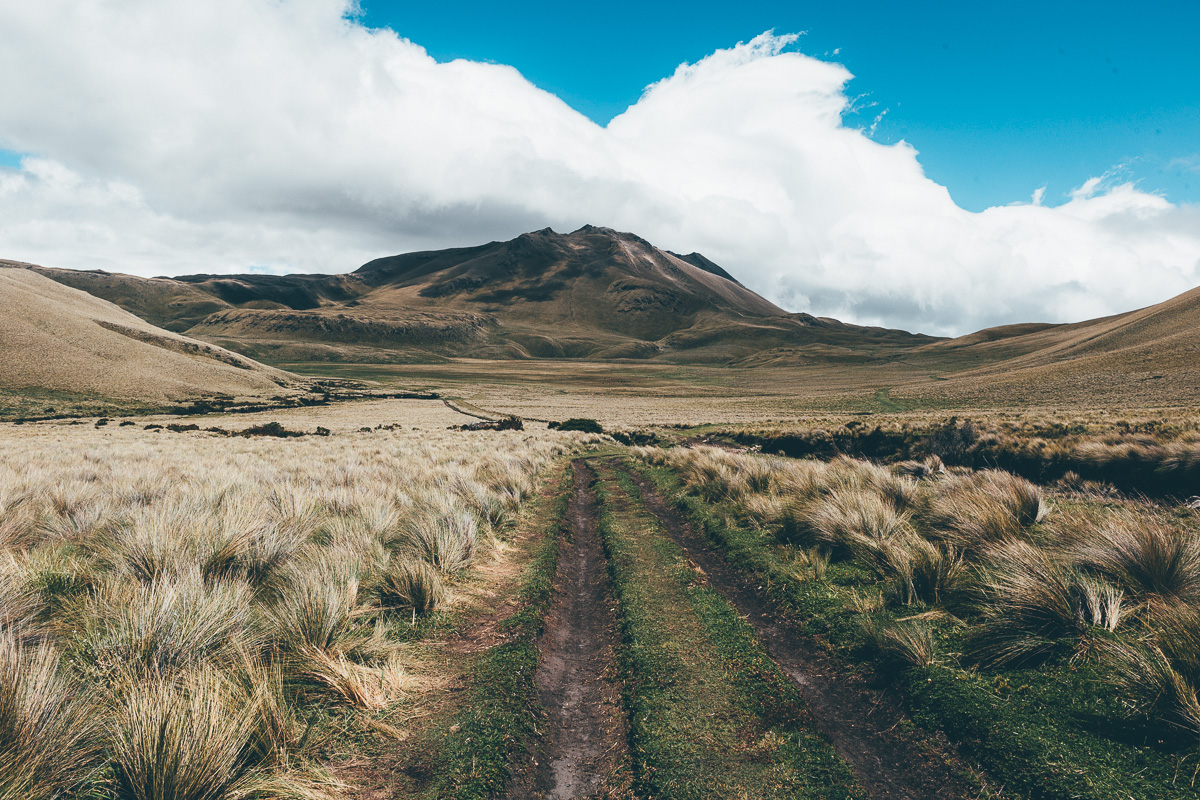The Gringo Primer: Pointers for Bikepacking Latin America
Share This
Following a three-year trip from Mexico to Argentina with his Salvadoran partner, Jake Dacks put together this concise guide to help folks fill in some cultural and historical gaps before traveling through Latin America. Beyond the nuts and bolts of bikes and gear, these non-technical insights aim to help bikepackers have a more immersive experience in the region. Find the guide and further resources here…
Words by Jake Dacks, photos by Jake Dacks and Andrea Molina
I recently spent three years riding my bike from Mexico to Argentina with my partner, Andrea. Along the way, we met many other bike travelers. Some were overflowing with excitement, and some were underwhelmed with their experience. For the most part, it was clear that the people who were having the most enriching—even life-changing—experiences weren’t necessarily those who climbed every 4,000-meter pass or had the lightest titanium spoke nipples. Rather, they were the people who most immersed themselves in the experience.
While I spent many hours deciding exactly which tires, sleeping bag, and stove to use on the trip, I thought a lot less about how I would interact with the places I would be and the people I would meet there. I was lucky to be traveling with someone born and raised in Central America and to have traveled, studied, and worked in much of the region myself. I still put my foot in my mouth plenty of times, which is why I’d like to help others avoid the same mistakes.
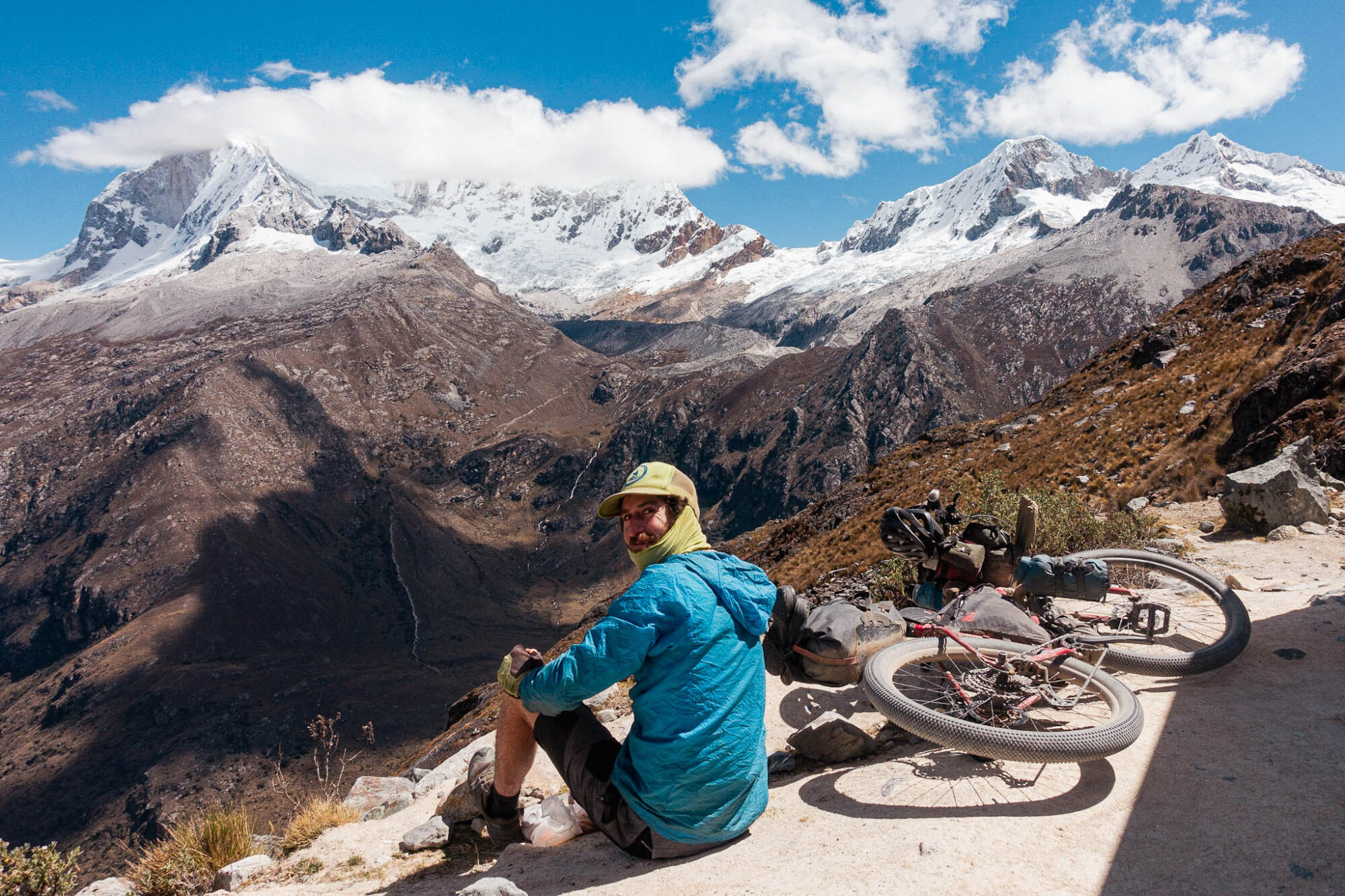
In service of that aim, this article is written for folks who may have let the excitement of biking lead them to studying the elevation profile of the Trans Ecuador Mountain Bike Route, for example, more than the history of the country it traverses. While it isn’t realistic to expect everyone to be an expert in the areas through which they are traveling, additional knowledge opens up new universes through which to experience a place. Just think about how learning to identify a new plant or bird where you live changes the way you experience your own neighborhood.
It’s my hope that this article encourages you to seek a similar sense of groundedness that deepens your experience of traveling in Latin America beyond the incredible views and delicious food. Of course, some of the local context can be picked up on the road, but a more historic and culturally themed checklist should still definitely make its way into your trip prep. For anyone wishing to use this as a starting point to dive deeper, check out the resource list further along. I’ve also included a short list of things you might consider incorporating into your trip—small gestures to give back to the people who will undoubtedly share so much with you.
All that said, Latin America is filled with unique cultures, languages, histories, and geographies, all of which contribute to the wide spectrum of realities experienced by its people. While some general experiences are shared by the region, it is often insufficient to paint the whole region with a broad brush. This article isn’t meant to replace the Lonely Planet guide taking up half of your seat bag, but it offers a few reflections on traveling through Latin America, especially as someone born and raised in the Global North. These thoughts are general enough to apply to someone bikepacking through Guatemala or Bolivia, but it tries not to erase the region’s distinct identities.
“Gringo!”
Let’s start with the word gringo. If you’re not familiar with it, that’s probably for the best. In that case, you’ll just smile and wave when an excited Andean woman looks up from tending to her sheep and yells it at you while grinning from ear to ear. And then you can do the same when it happens again every thirty minutes for the next two months. The rough translation here, as you’ll deduce, is just “white person.” It’s not typically meant to be offensive.
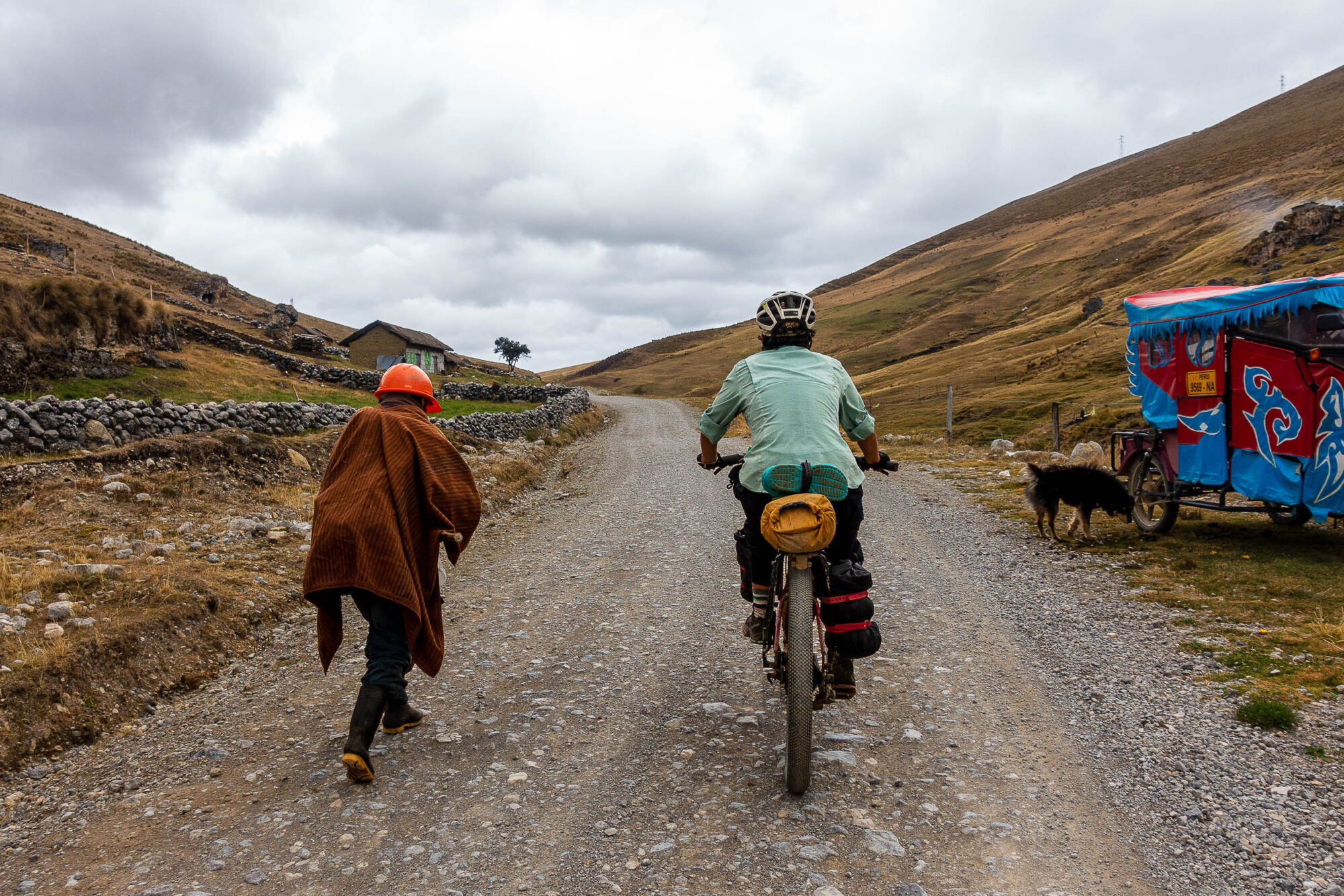
Adding some historical context to the word is what makes it more complicated and, for some people, offensive. There are two stories that explain the origin of the word. They both relate to the Mexican-American War. One has to do with a song that starts out with “Green grows…” The other is less innocuous, derived from “Green, go home,” which Mexicans allegedly yelled at the invading U.S. soldiers who wore green uniforms.
So, if you imagine everyone who refers to you as a gringo telling you to go home, it won’t be long before you take that to heart. However, the term is much more commonly used as shorthand for a white person from North America or Europe. In my experience, it is simply the easiest word to refer to people like me. I’ve had many people pause, struggle to come up with a different word (for fear of offending me), still use the word gringo, and then immediately apologize for using it.
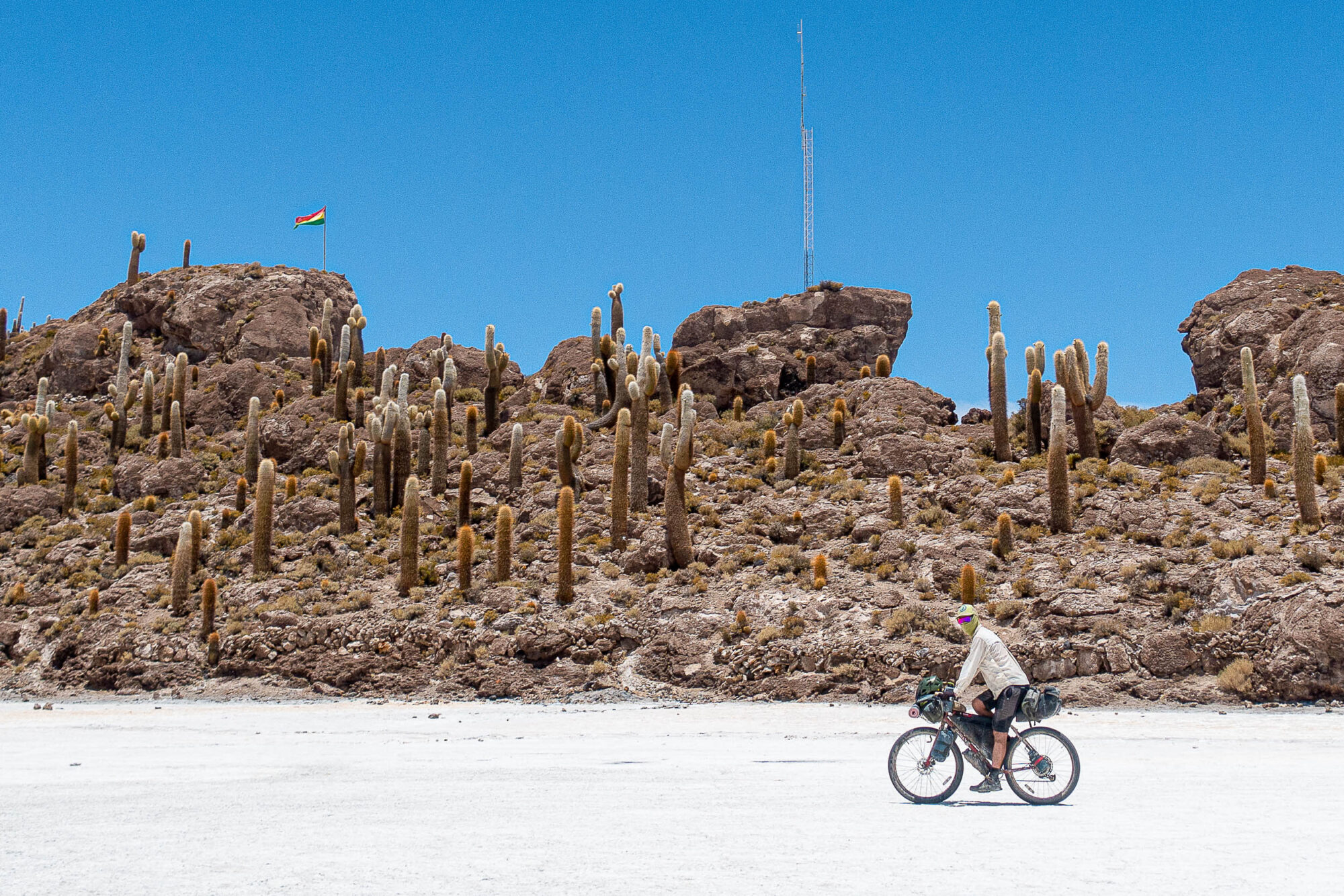
For me, this really only gets complicated when you aren’t white. I rode for a month through northern Peru with Andrea, who is from El Salvador, a Quebecois woman, and a guy from Trinidad and Tobago. While always well-intentioned, constantly hearing, “Gringos!” yelled at us from rooftops and terraced mountainsides didn’t always sit well with the half of our group that wasn’t white. While I don’t have advice for people in that situation, I will offer a warning that anyone riding the popular bikepacking routes through rural areas in the northern Andes will become a default gringo. It seems like it has as much to do with going through those areas on a modern loaded bike as it does with what you actually look like or where you come from. If you’re following the Andes, expect your gringo-ization to ramp up in Colombia, peak in Ecuador and Peru, and taper slightly in Bolivia and northern Chile and Argentina. By the time you ride into Mendoza, you might even miss the random greetings that you swear came from a field populated entirely by llamas.
U.S. Political Intervention
The U.S. has intervened in the internal politics of every country in the region, both politically and economically. Exploring the term gringo would be incomplete without diving deeper into the historic role of North American and European countries into Latin America. This subject has filled many books, so you can (and should) do your own research, but it’s helpful to have a baseline understanding of the devastating effects of these invasions before traveling in Latin America. For starters, tens of millions of people died as a result of the initial invasions of the Americas. The estimates vary widely, but a recent study claims that of the 60 million people living in the Americas, 55 million died as a result of the conquest.
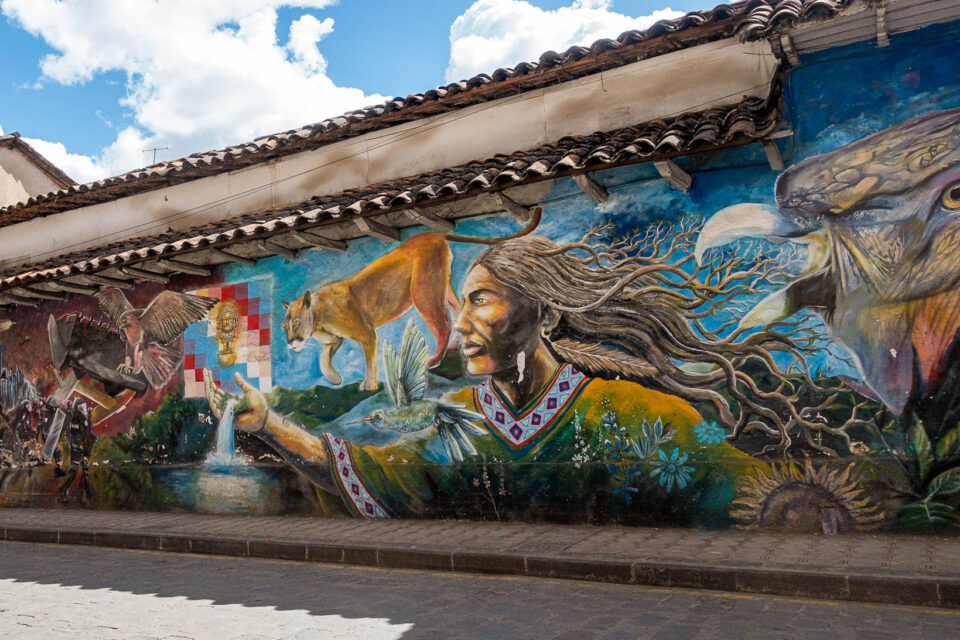
Over the next few centuries, the U.S. undermined the autonomy of just about every country in Latin America through military invasions, economic control, and overthrowing democratic governments. The history here is extensive, and I can’t do it justice, but it’s important to take this into account when traveling in Latin America, especially because it isn’t over.
On the Trans-Mexico route, you’ll encounter villages shaped by the North American Free Trade Agreement (NAFTA) between Mexico, the U.S., and Canada, which flooded Mexico’s markets with corn from the U.S., putting two million farmers out of their livelihoods in the place where corn was literally invented 7,000 years ago.
As you ride through the Peru Great Divide, you will come face to face with European and North American mines that disfigure mountainsides and pollute local waterways. In fact, the quiet, smooth dirt roads that help make it one of the best bikepacking routes in the world only exist because of these mines. For me, the juxtaposition of stunning landscapes and outside intervention is one of the most interesting themes of any bikepacking trip in Central or South America. It’s one that can inform your conversations with locals, shed light on your own identity, and even change the way you look at the world.
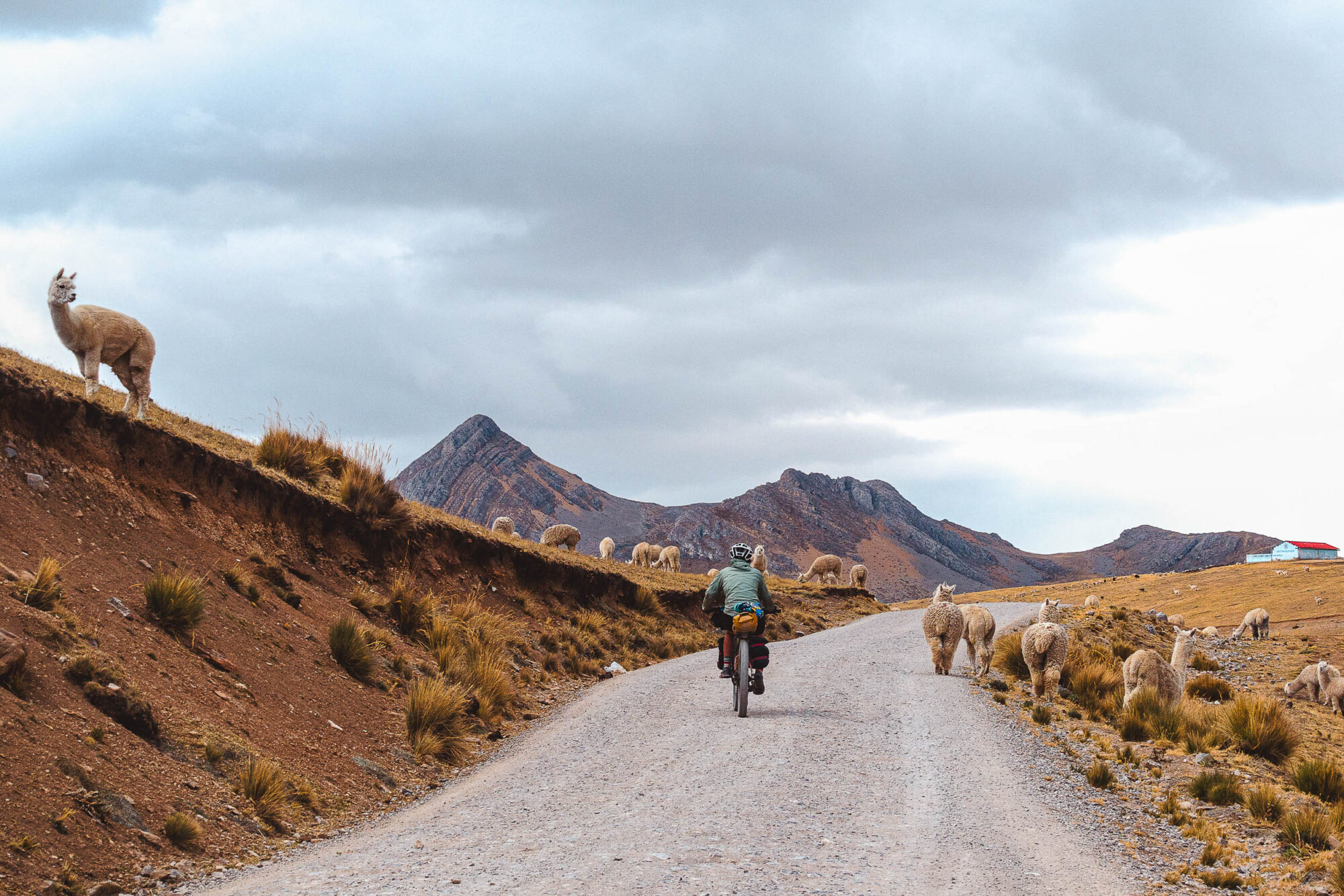
The examples are endless, and it can all be a little overwhelming. To be clear, this isn’t meant to make you feel guilty or dissuade you from biking through Latin America. However, your journey should be undertaken with some historic context so you travel with humility and an appreciation of the resiliency of the cultures you will encounter.
Economic Realities
You may be traveling on a tight budget, but your economic reality is still different. One of the greatest things about traveling by bike is how accessible it can be, and I love the types of people who are drawn to it. We are a community of folks who love getting off the beaten path, find sustenance in new experiences, and usually have a hardcore do-it-yourself attitude. For many of us, surviving on a tight budget is a point of pride.
While I love this sense of thriftiness, it’s worth pointing out the simple economic realities of the Global North vs. the Global South are different. Talking about money is sensitive, but there’s no denying the fact that, especially for people whose families didn’t recently emigrate to Global North countries, our economic reality is not the same. I won’t deny that a limited budget for traveling can be stressful, but that, in and of itself, doesn’t put you on equal economic footing with impoverished people in the Global South. If you have access to family or friends that can bail you out in a pinch, remote work, unemployment compensation, generational wealth, investments, a credit card, traveler’s insurance, future work that pays a living wage, or higher education, you are very likely better off financially than most of the people you will meet.
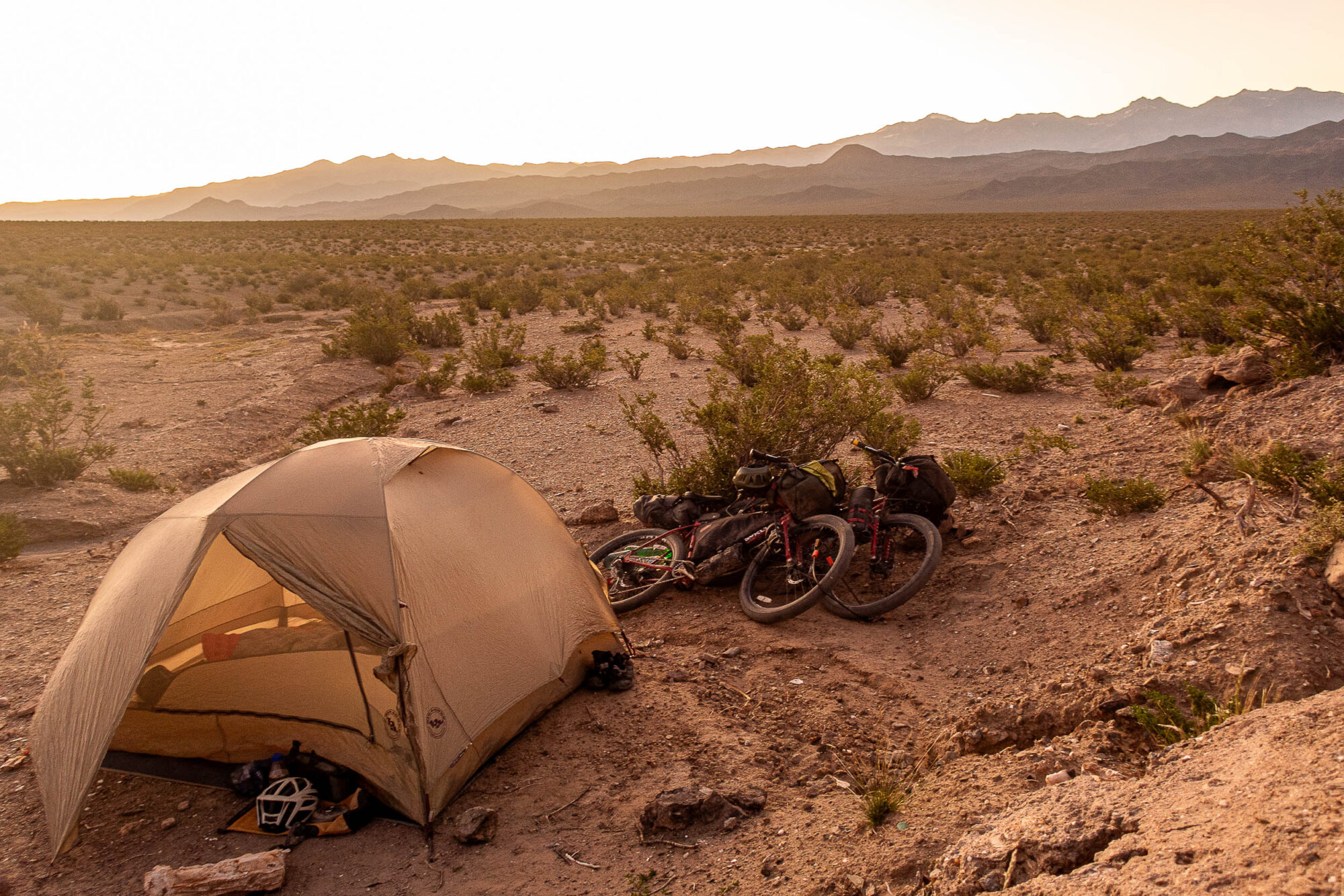
This is important because there can be a tendency among us dirtbags to almost glorify poverty. We sleep in tents every night, bathe in rivers once a month, and dry ourselves off with our one pair of dirty underwear. We travel with the bare minimum and survive on oatmeal, pasta, and whatever wild fruit we can gather. Okay, I’m exaggerating, but you know what I mean. For us, roughing it for weeks or months at a time is interesting and exciting, often because it’s so different from our normal reality, which we know awaits us with a comfy bed in an air-conditioned room after the trip.
However, for most people living in poverty, not having regular access to clean water, electricity, or medical care is an inescapable injustice. Having this reality in mind as we interact with people allows for more genuine communication. We can talk about the structures that allow people like me to ride my fancy bike through Peruvian towns that have been fighting to get clean water or how the gourmet coffee grown in Colombia is hardly ever enjoyed within the country’s borders. These genuine connections, sometimes forged by highlighting our differences, can also illuminate the universal traits that make us all human. And those moments nourish us even more than that last spoonful of peanut butter you’ve been saving for a rock-bottom moment.
Complicated Relationships
Remember that people may have a complicated relationship to your country. For the most part, the people I come across in Latin America are excited to hear that I’m from the U.S. For some, it has attained a sort of mythical status. However, for people with a personal connection to the country, it can be an emotionally complex relationship. For example, in a small Ecuadorian town, we were graciously taken in by the mayor after a long day of riding in the rain. He was excited that I was from the U.S. and told us that he’d lived in New York for 20 years. Feeling a bit homesick, I pushed him to talk more about his time there, and he reluctantly shared that his most recent experience in the U.S. was spending a year in an immigrant detention center, where he almost died. He was eventually deported, leaving behind his wife and kids, whom he hasn’t seen in years.
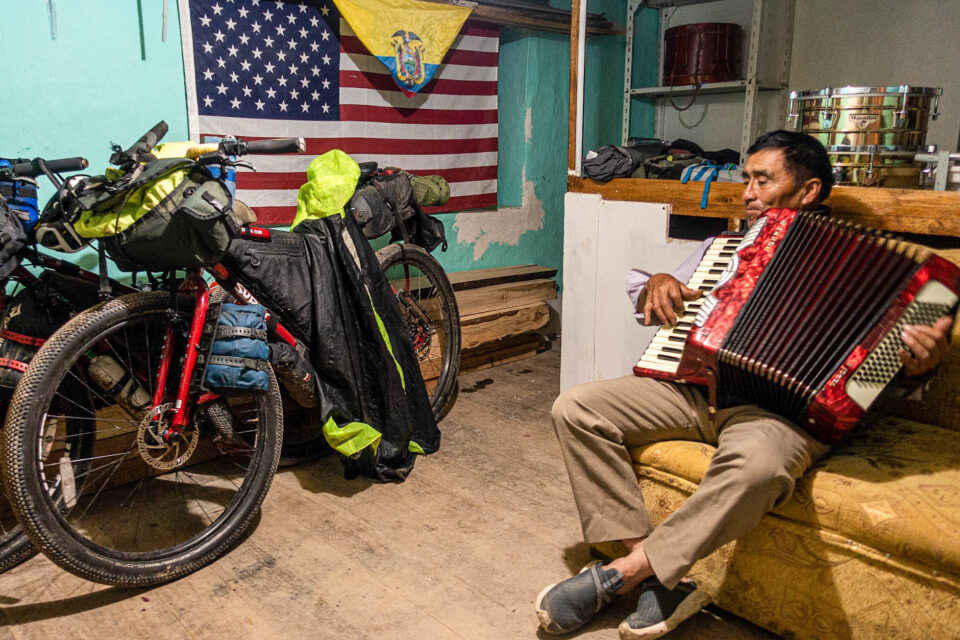
While it was a moving experience for me and a unique perspective into an inhumane system, I decided from that point on, I wouldn’t push people to talk about their relationship to the U.S. if they weren’t obviously eager to share details.
America is not just the United States
I should also include a quick note on the word “America.” From the perspective of most people in the Western Hemisphere, America is all of it. It includes everything from Canada, through the Caribbean and Central America, down to Tierra del Fuego—what you’d probably (and accurately) refer to as The Americas. While it’s common for people from the United States and Europe to refer to the United States as “America,” it can sometimes be confusing and even offensive to other people in the region. I think it’s best to use The United States instead of America for the sake of clarity and respect.
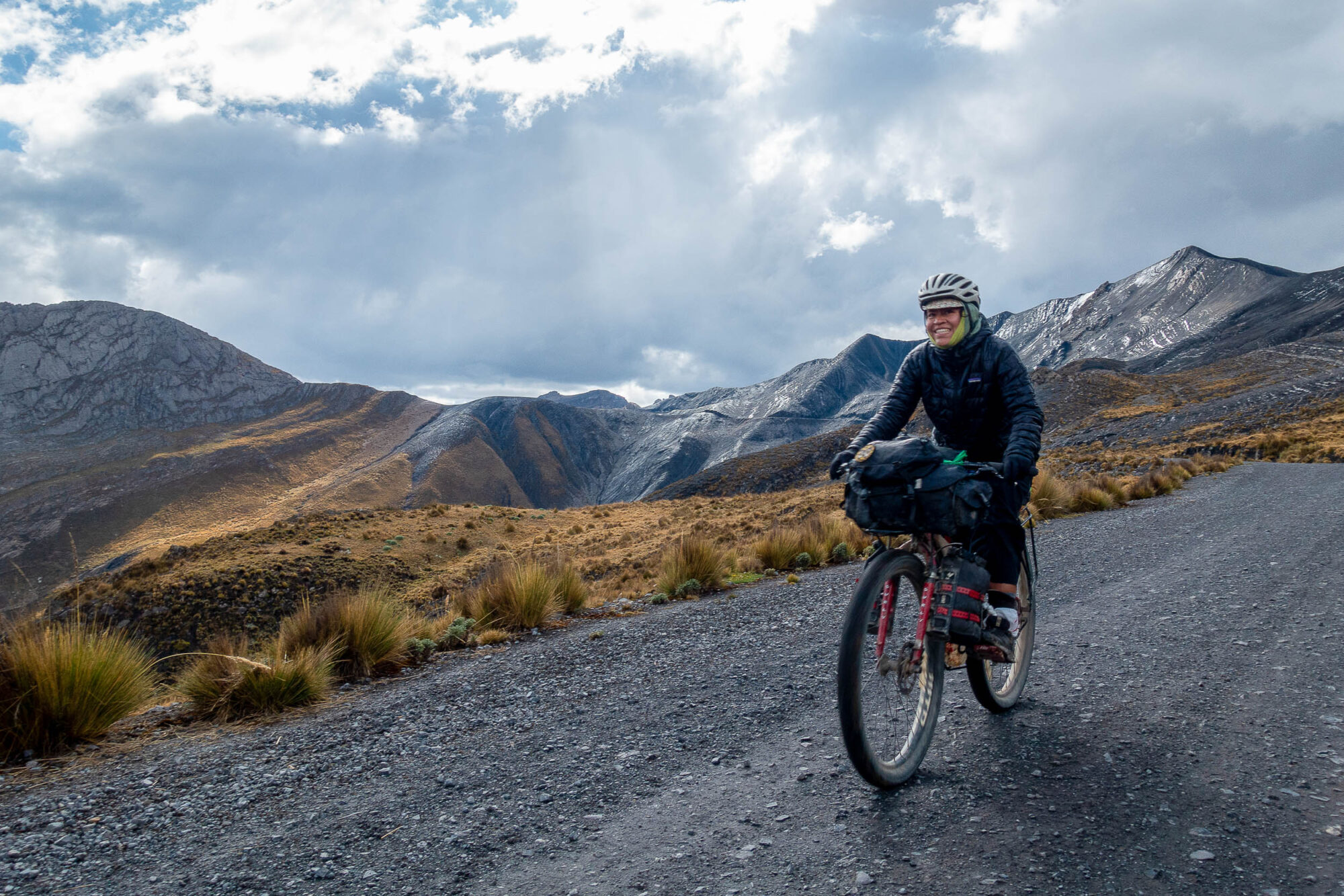
You’ll probably be safe
Security is a concern for people traveling all over the world, and it gets extra attention in Latin America. In my years spent in the region, I’m much more struck by people’s kindness. The only places I’ve been robbed remain France and the U.S.
When my friends and family ask whether we were ever scared of being robbed, I always tell them about a night that we spent in a rural part of southern Mexico camping on a footpath in the mountains. After a long day without much luck finding a good wild camping site, we settled on setting up the tent on a little trail. We figured that, since it was almost dark and a Saturday night, it was unlikely that anybody would be coming through. We ate dinner and got in the tent to go to sleep. Around 10 p.m., we heard a couple of men whispering as they descended the path toward our tent. In my deepest voice, I called out, “¡Buenas noches!” to let them know there was a giant, tough (and definitely not scared) man inside the tent. They immediately responded, apologizing for bothering us, and asking permission to pass by our tent that we’d set up in the middle of their trail. Andrea and I, hearts racing, squeezed each other’s hands as they walked away, thinking we’d just dodged a bullet.
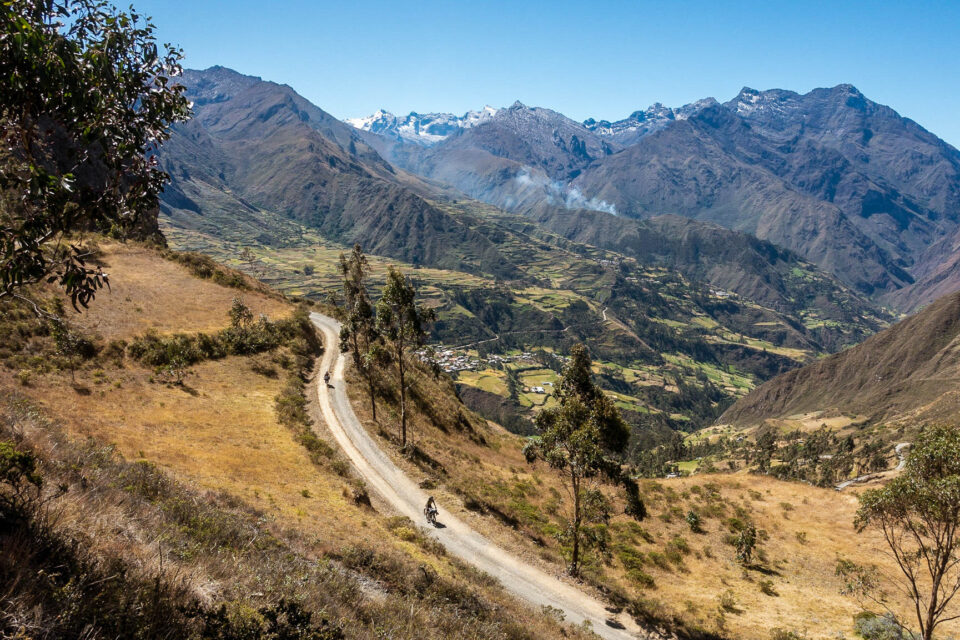
Close to midnight, we were awakened by the sound of two men coming back up the trail. Our minds immediately thought, “Okay, they told their friends there were some sitting ducks up here, and now these people are coming to rob us.” In the midst of our panic, they gently called out to us while they were still a good distance from the tent. They felt so bad that we were sleeping on the trail that they went home, grabbed their dinner, and brought the tamales back up the hillside to offer us a meal.
While that happened early on in our multi-year bikepacking journey, it remains the prime example of the type of treatment we received all throughout. In moments where we were lost or felt unsure of our surroundings, a local (sometimes a handful or a few dozen locals) would approach us to help, almost without fail.
This generosity, much more than any type of danger, will characterize any bike travel in the region. Of course, it’s important to take basic precautions like avoiding being out late at night and checking in with locals about the route, but I eventually deduced that a steady drip of anxiety would have more of a detrimental effect on my life than the unlucky experiences I was unlikely to encounter anyway. Sure, something terrible could happen, and bad things have happened to others in the past, but it’s improbable enough that, to me, it isn’t worth worrying about as long as I’m acting responsibly and using my best judgment. I know that may be easier said than done, but as long as you’re exercising the same level of common sense caution you would in an unfamiliar part of your own country, you’ll very likely be fine.
Go for it!
You don’t have to know everything about the people and places you’re visiting, but grounding yourself in context will help you carry yourself respectfully and earnestly. It will be the voice reminding you that the town doesn’t owe you anything when you show up tired and hungry. It will help you enjoy their hospitality even more when they give you a warm meal and a safe place to camp.
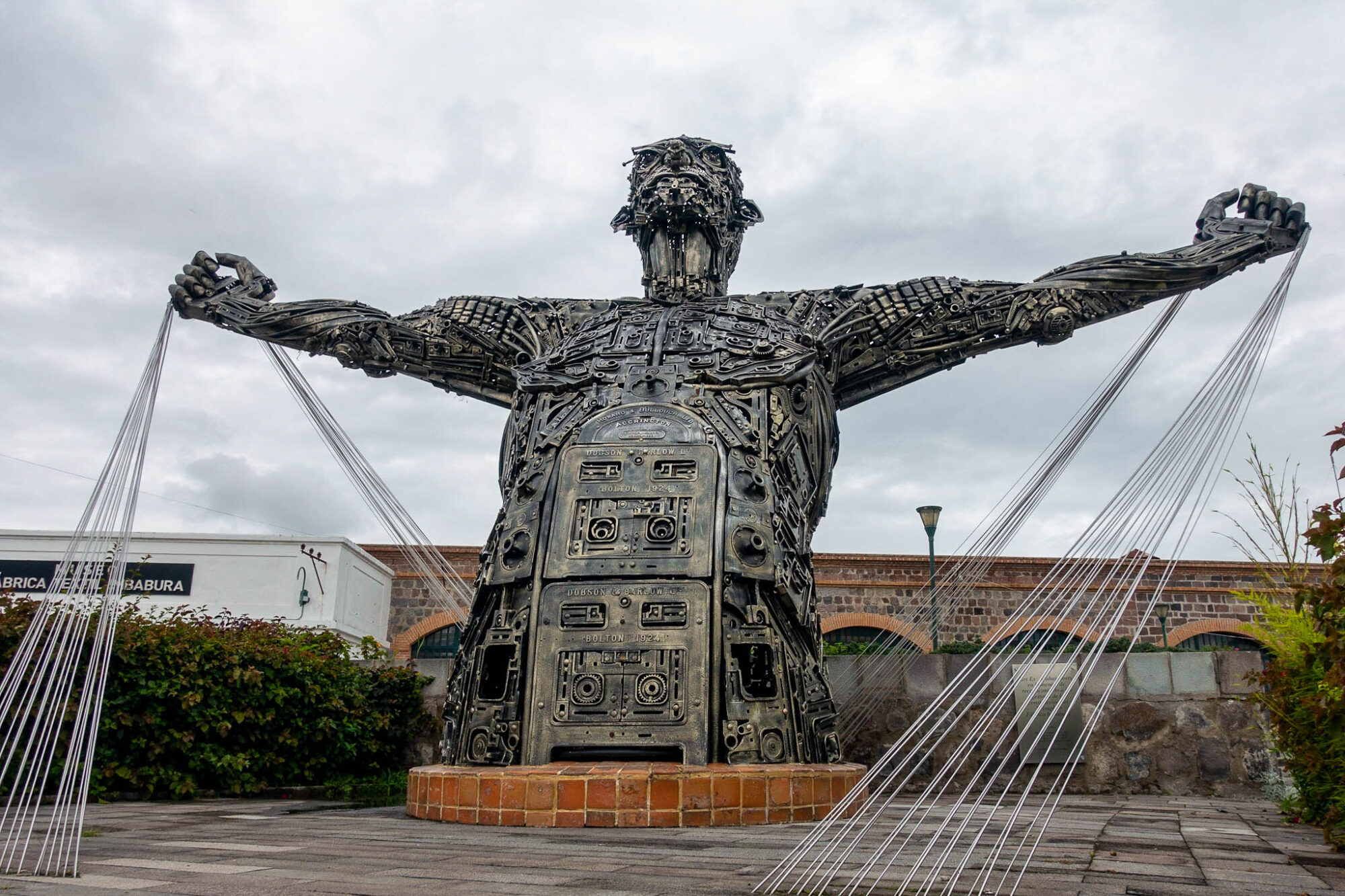
Overall, it’s pretty simple. Treat people with respect and, even if there are language or cultural barriers, the intention will translate. But also do your homework. It is a privilege for most of us to travel freely through the same borders that divide families and endanger many people’s lives. You are not personally responsible for that, but a deeper understanding of how you benefit from it will help you appreciate your trip, the people you meet, and your own life more fully.
Resource List
If you’re ready to dive a little deeper into the region, specifically with regards to the effects of the imperial and colonial powers on Latin America, find a small selection of books and movies below. Some are classic “must reads/must sees” on the subject, while others might be a little easier to approach as a beginner. There are heartbreaking documentaries, historical fiction, and some admittedly dense books. This is the most basic of primers, and largely focuses on some of the more egregious examples of intervention.
Books
- The Open Veins of Latin America by Eduardo Galeano: A history of exploitation in Latin America, highlighting the economic and social injustices inflicted upon the region by colonial and imperialist powers.
- The School of the Americas by Leslie Gill: An exposé of a U.S. military training school that counts Latin American death squad leaders and dictators among its graduates.
- Bitter Fruit by Stephen Schlesinger: An in depth look into the U.S. role in the 1954 coup in Guatemala and its consequences on the history of the country.
- 1491 by Charles Mann: A glimpse into the complex societies that existed in the Americas before Columbus and the subsequent conquest.
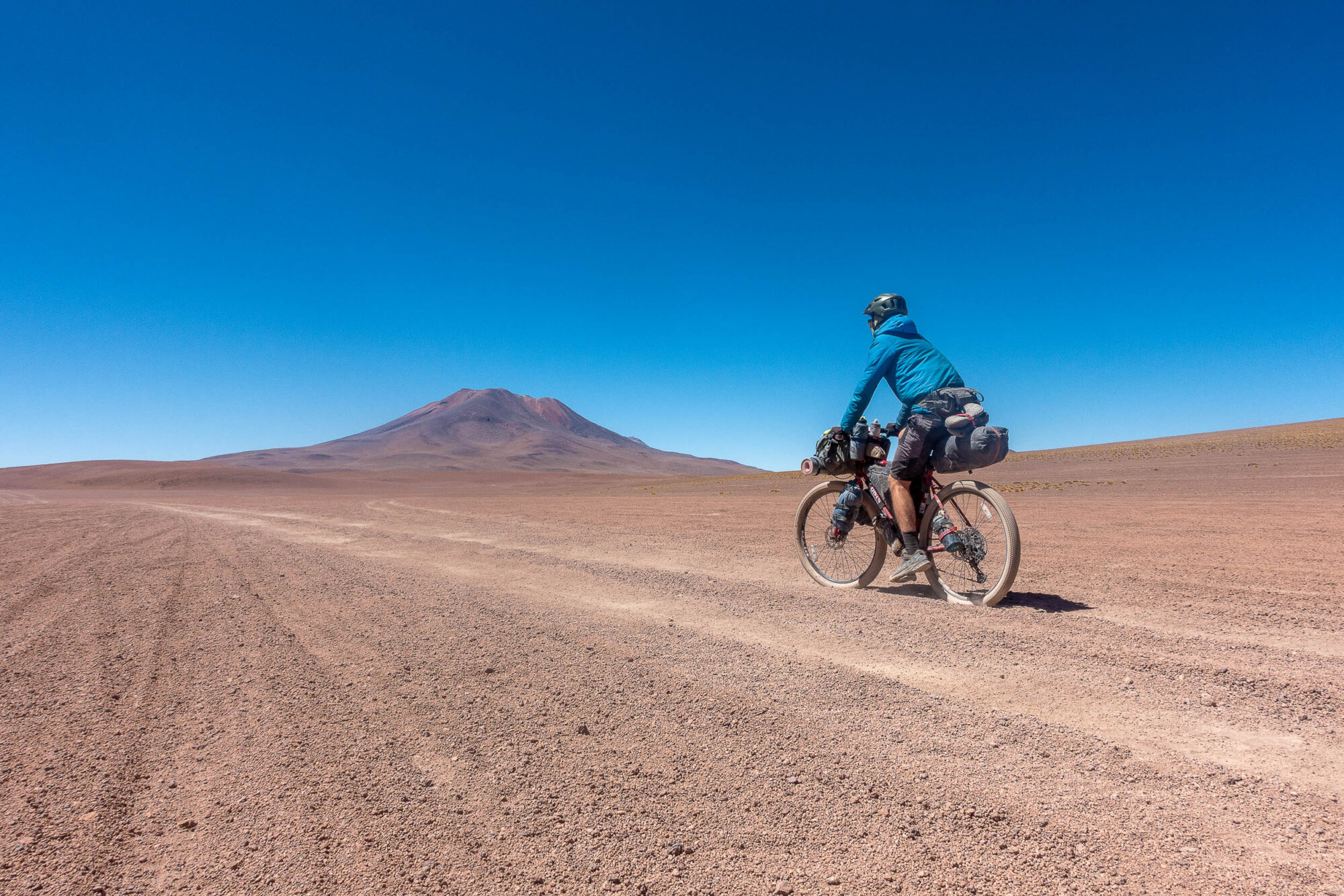
Movies
- Even the Rain (También la lluvia): A fictionalized account of the true uprising in a Bolivian city following an attempt to privatize the city’s water.
- Wiñaypacha: One of the few Peruvian films in the indigenous Aymara language, an elderly couple, living in a remote part of the Peruvian Andes face the challenges of daily life.
- ReMastered: Massacre at the Stadium: The story of Chilean singer Victor Jara’s murder following the U.S.-backed military coup in 1973.
- When the Mountains Tremble: A documentary that exposes the human rights abuses and violence during Guatemala’s civil war while focusing on the experiences of indigenous Mayan people, particularly that of Nobel Peace Prize winner Rigoberta Menchú.
- The Motorcycle Diaries: Che Guevara’s memoir that chronicles his journey across South America on a motorcycle, documenting the poverty and injustices he encountered, which ultimately played a pivotal role in shaping his revolutionary ideals.
Solidarity packing list
Consider including concrete ways to give back throughout your trip. It can be a great way to connect with people and allow you to leave a positive impact on the places you pass through. Treat this list as the beginning of a personal brainstorm session. What skills or interests can you offer that can easily be integrated into your bikepacking trip?
- Carry extra brake cables to share with local kids whose bikes need a simple tune-up.
- Offer your bike mechanic skills more generally to locals.
- If you take pictures of, or with people (with their permission, of course), offer to share the pictures with them too.
- Carry some dog food for the street dogs.
- Bring something characteristic of your home to share with people you meet (bracelets, small state flags, keychains, etc).
- If traveling through lands with Indigenous languages, learn a few phrases in those languages.
Further Reading
Make sure to dig into these related articles for more info...
Please keep the conversation civil, constructive, and inclusive, or your comment will be removed.




